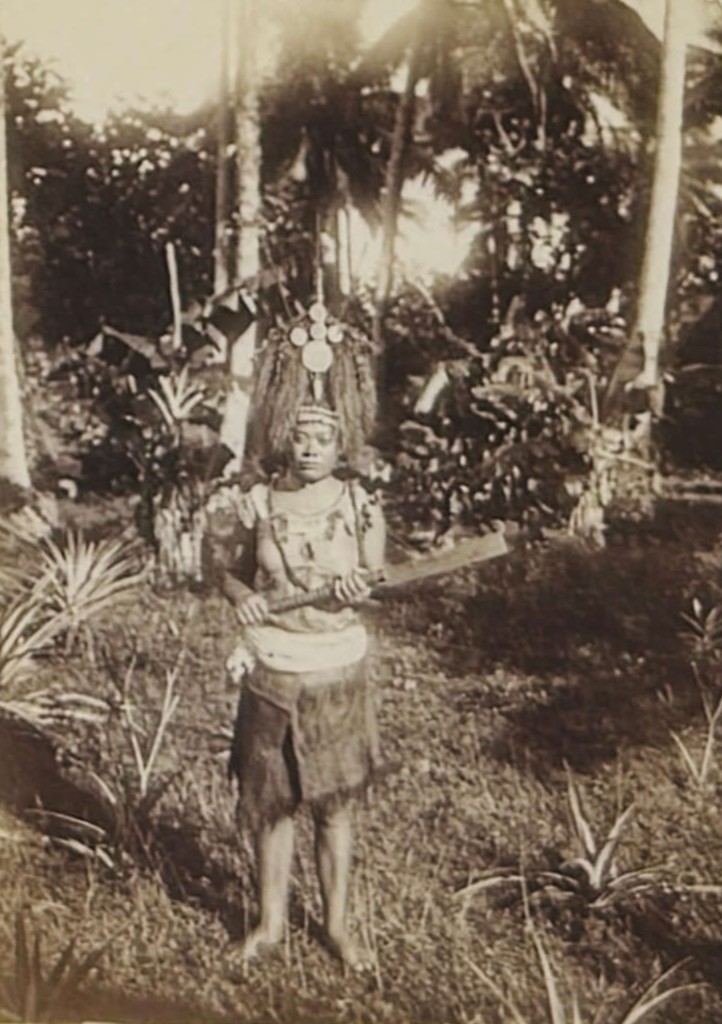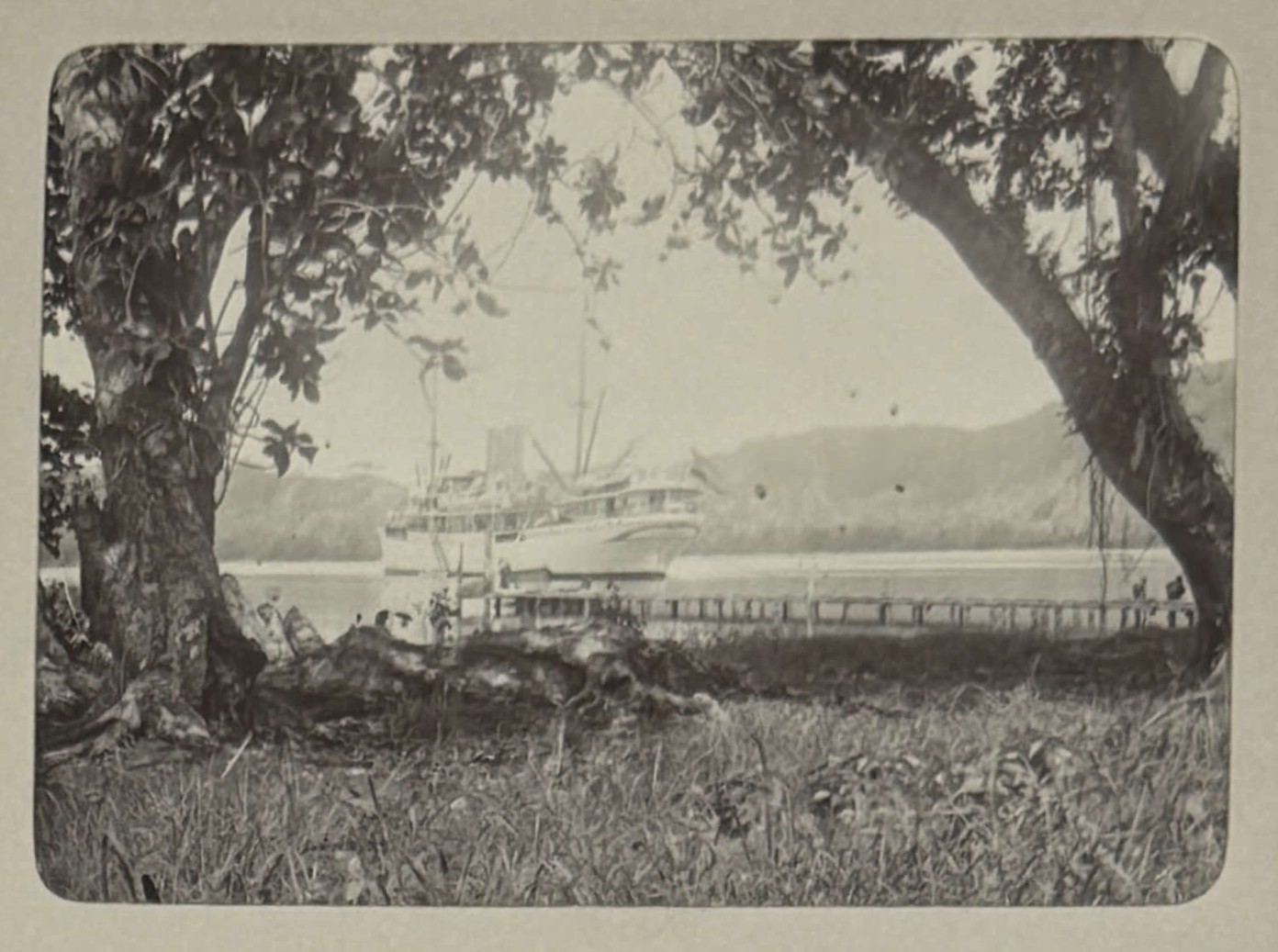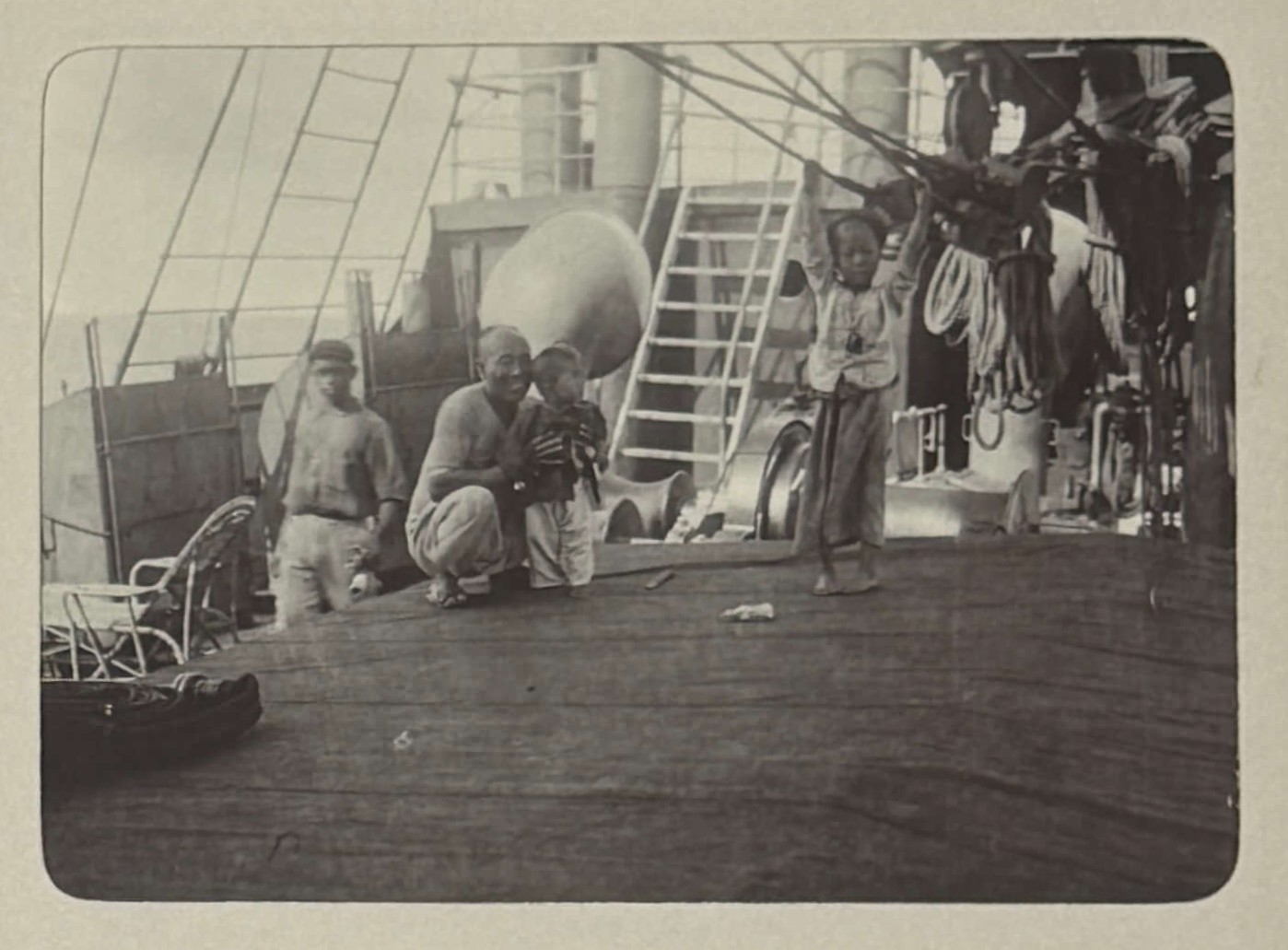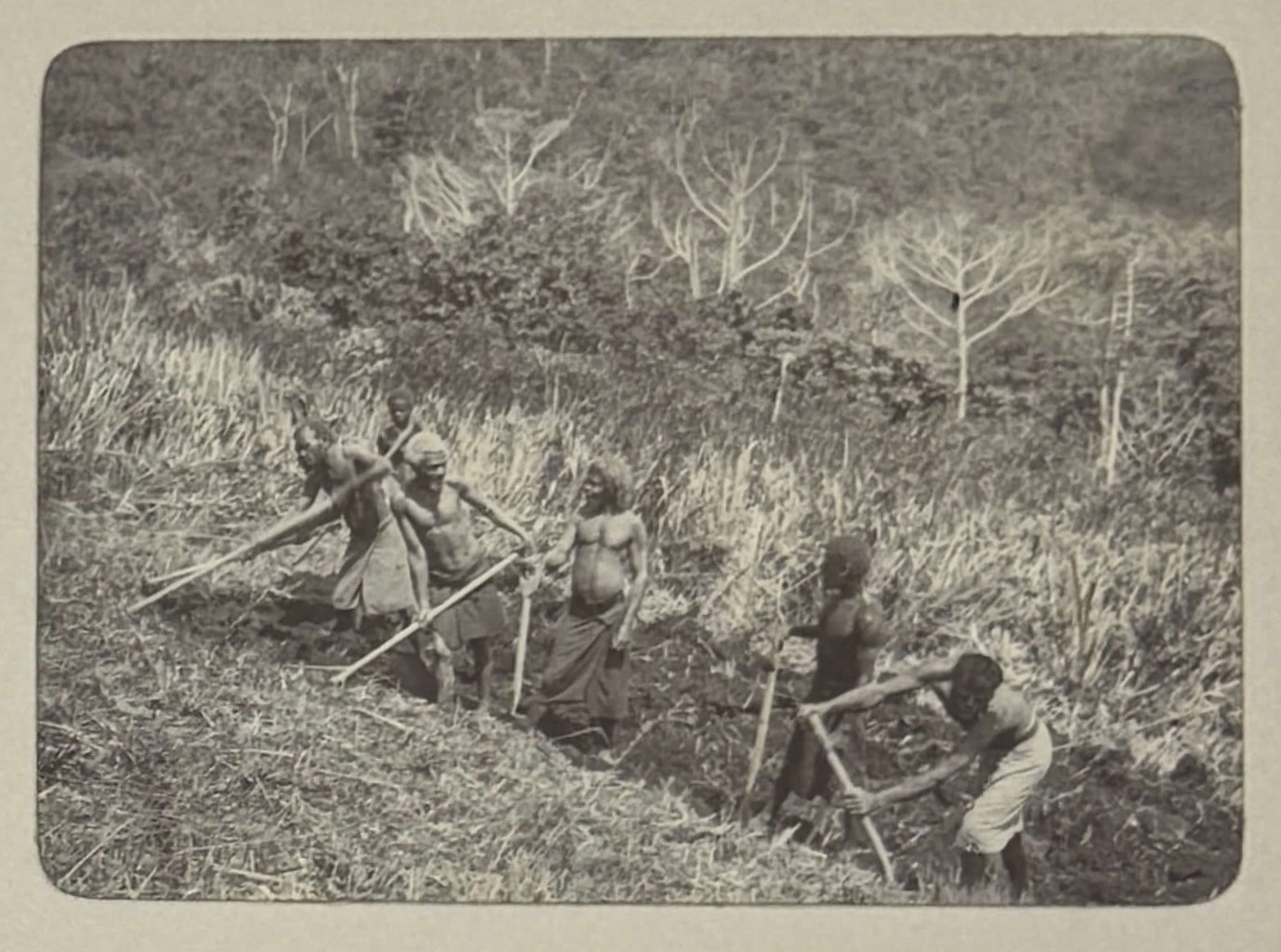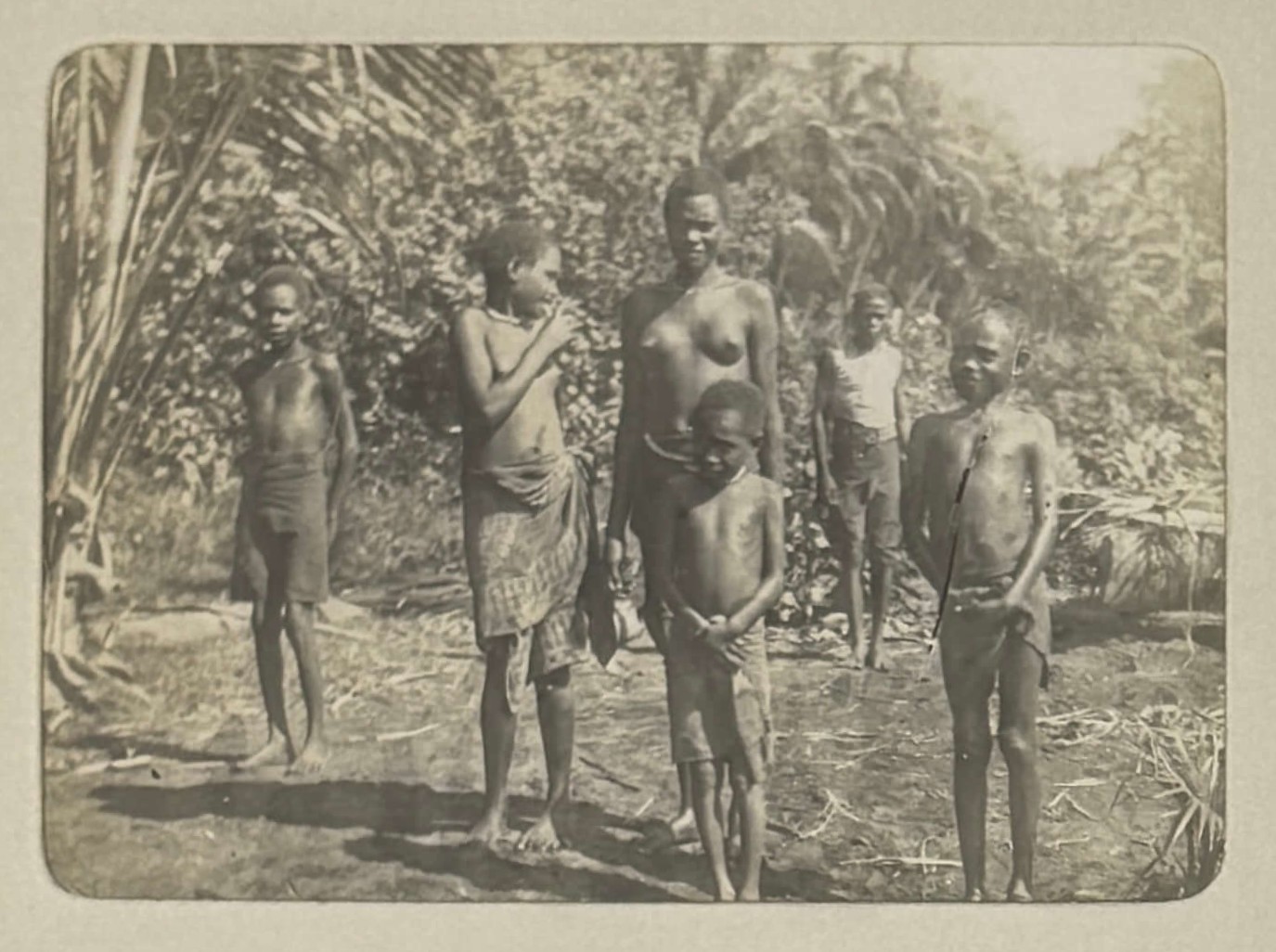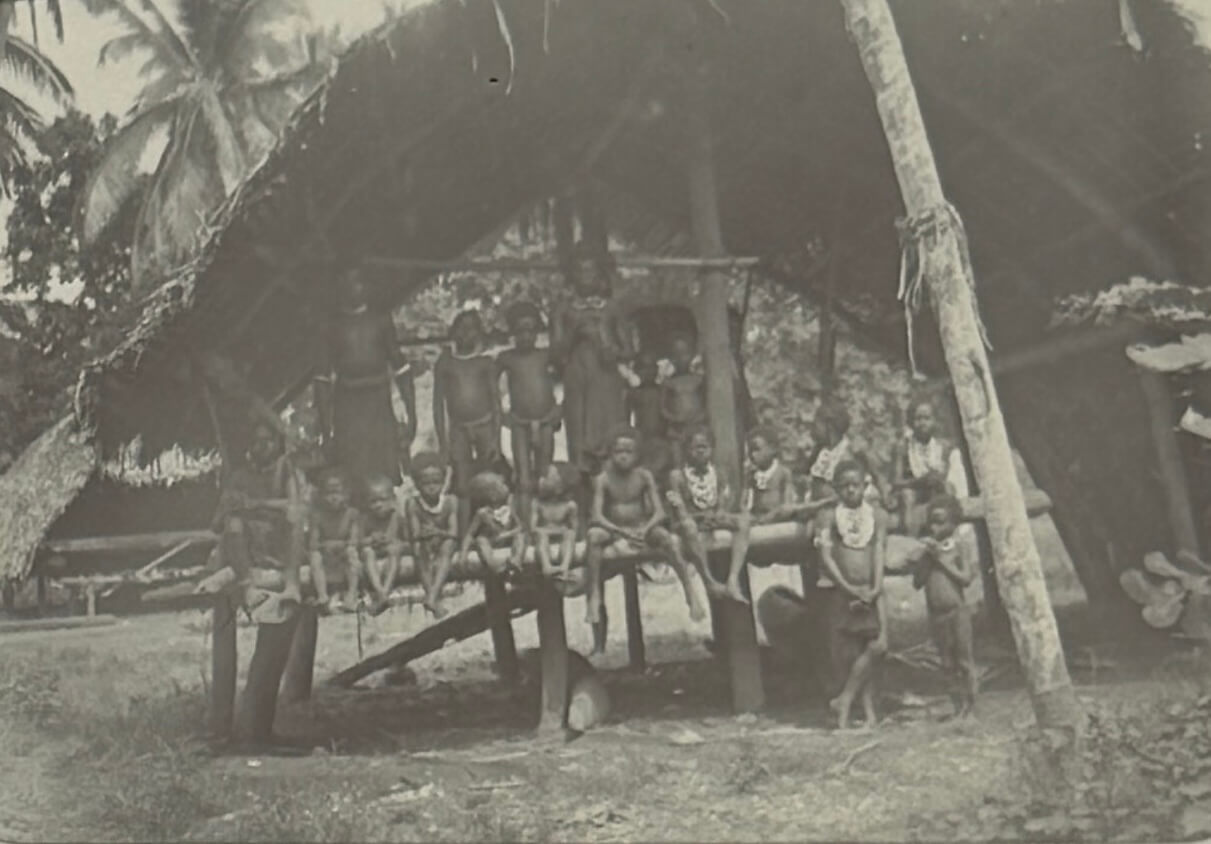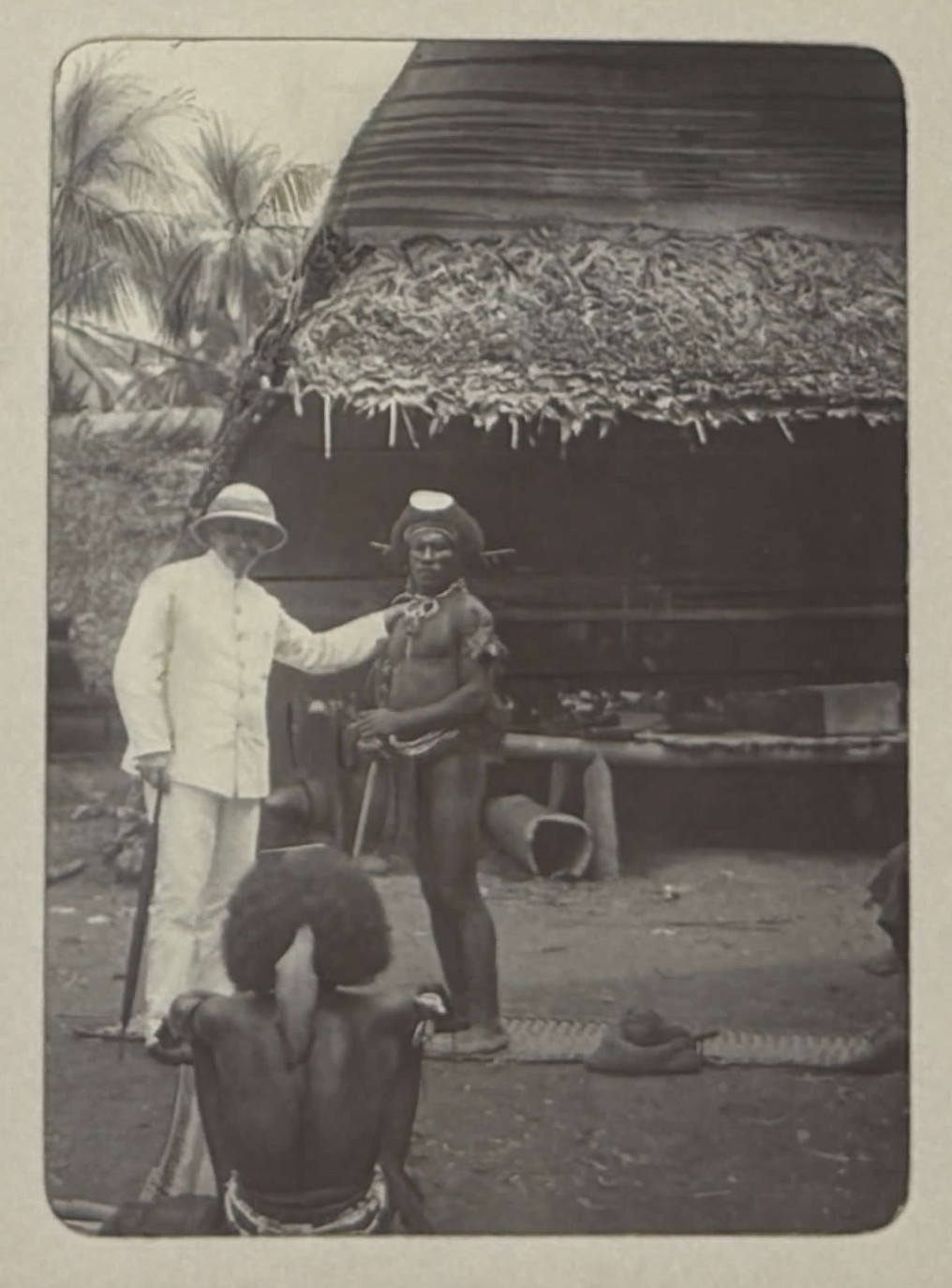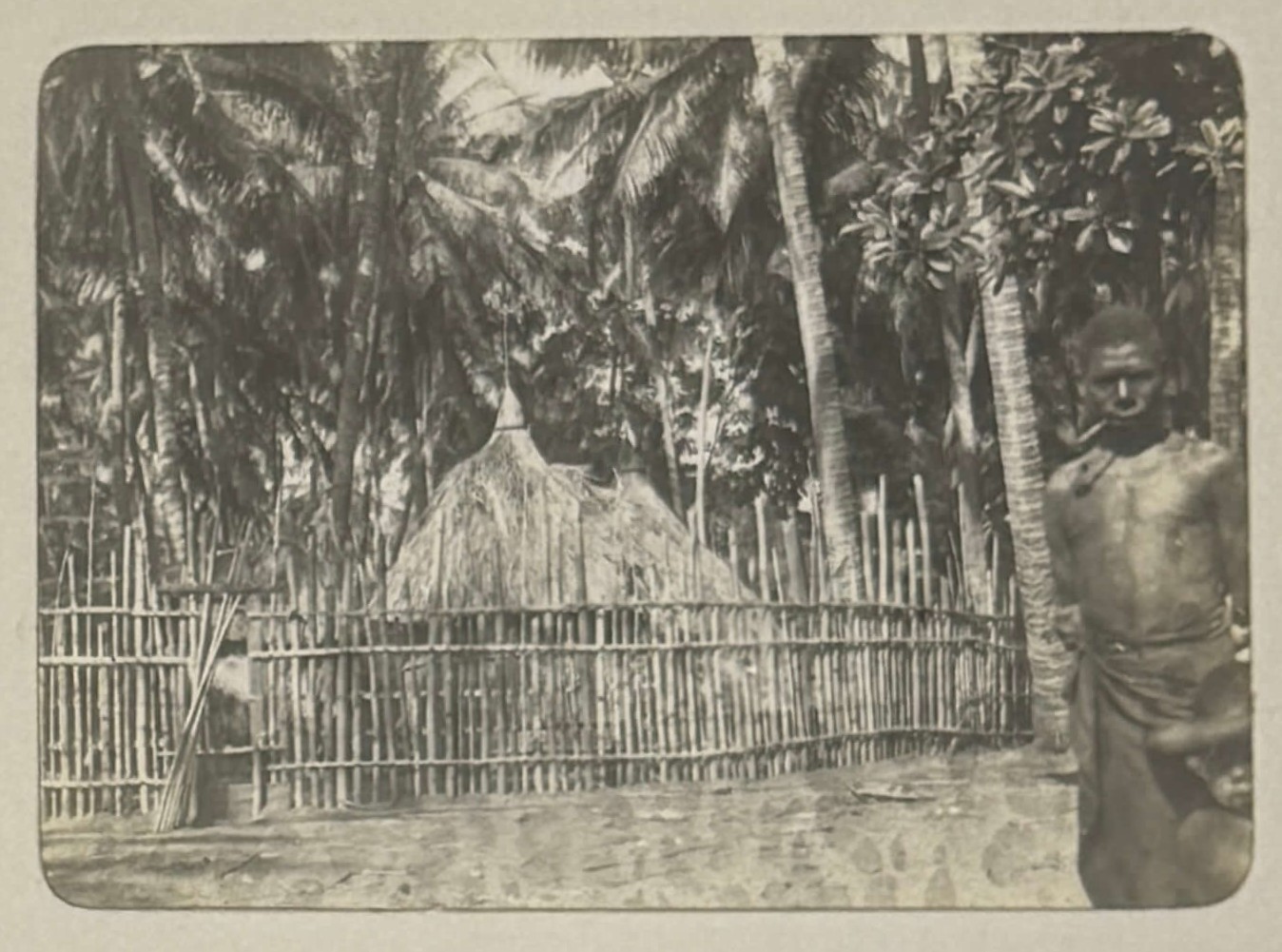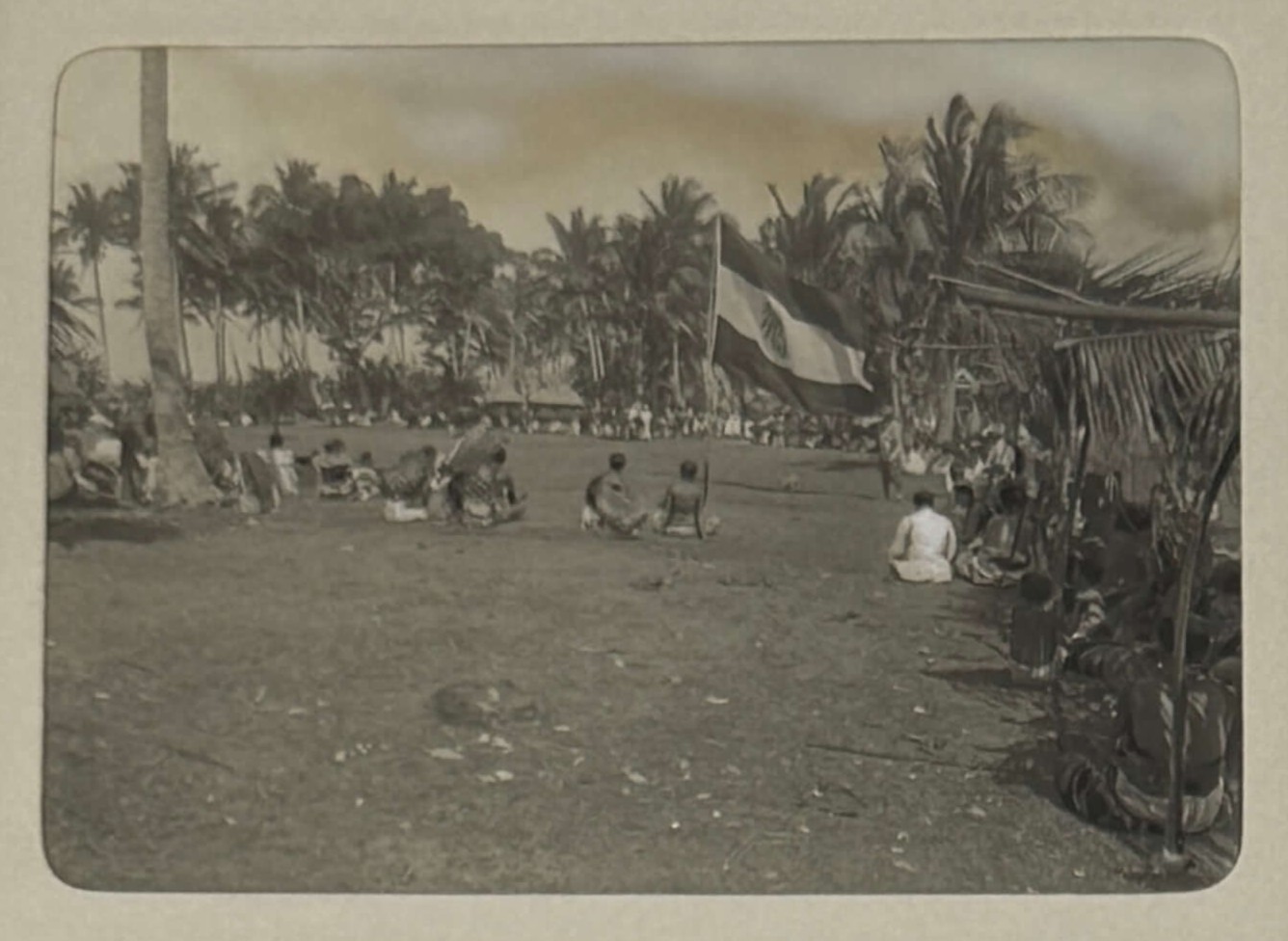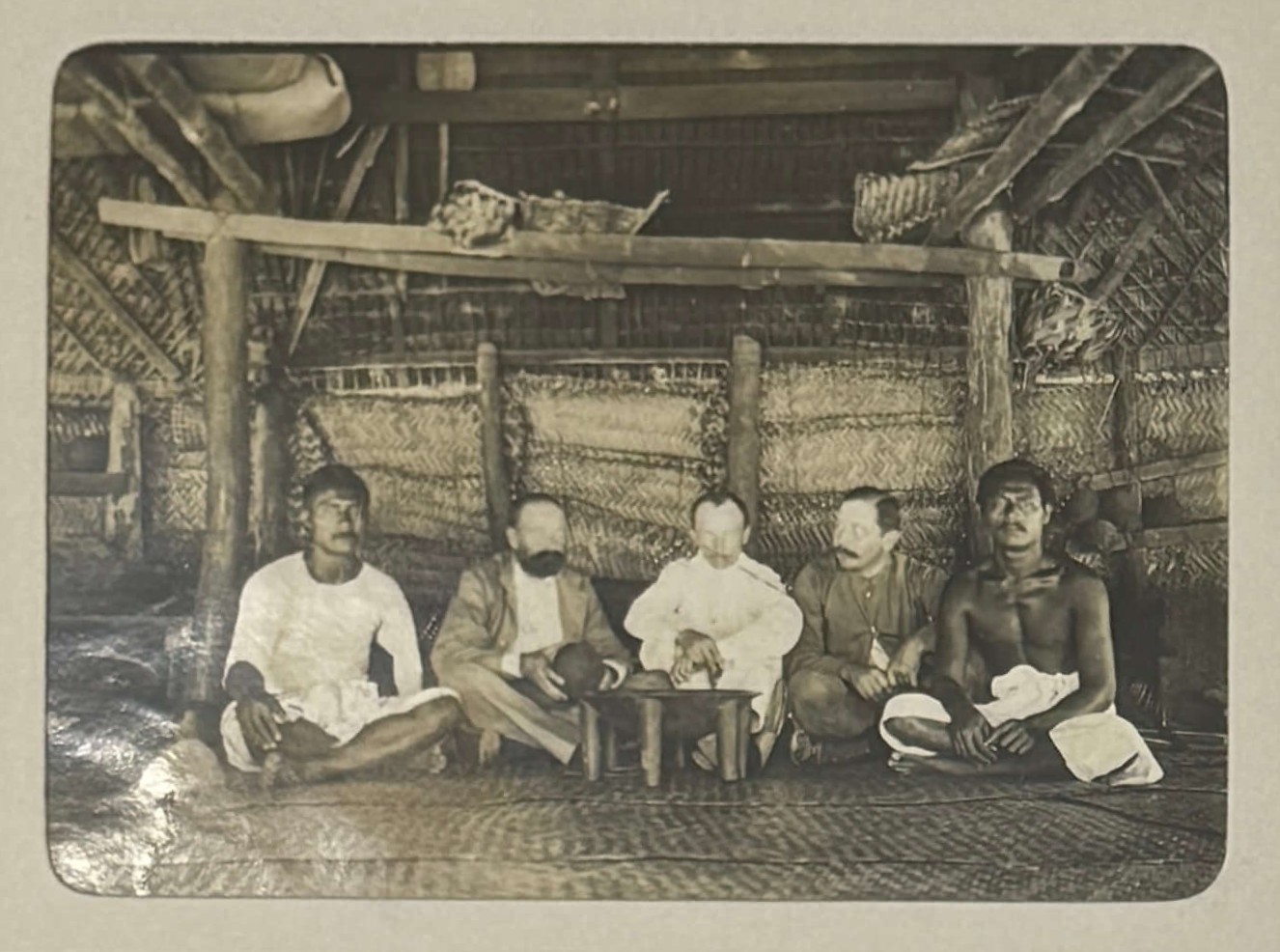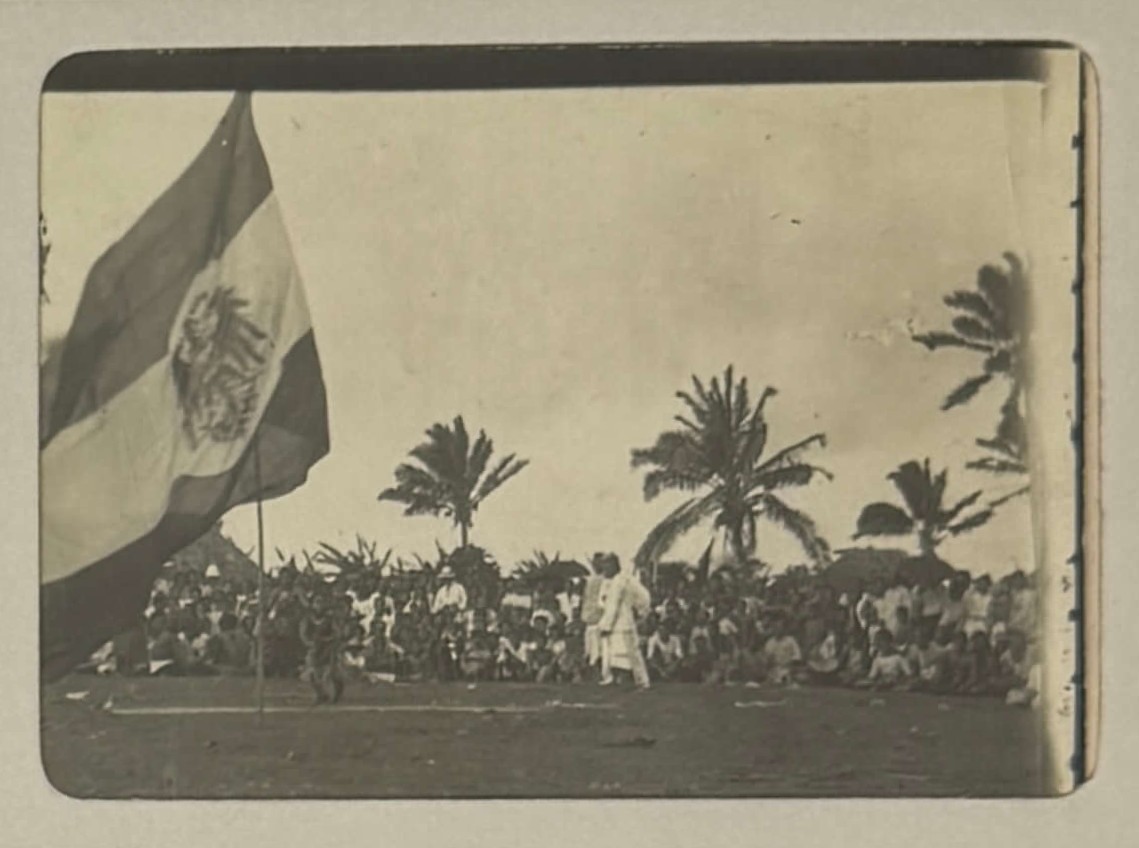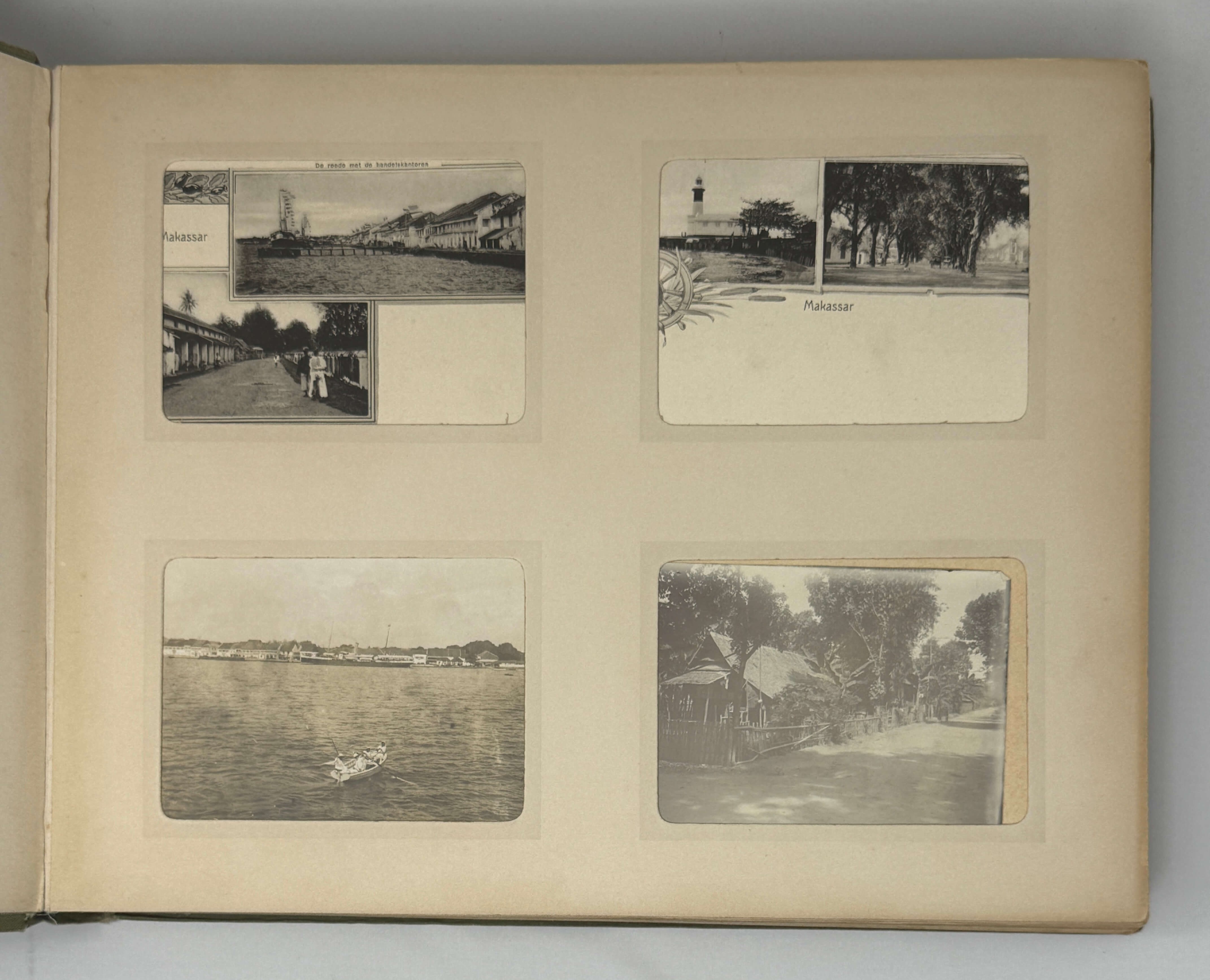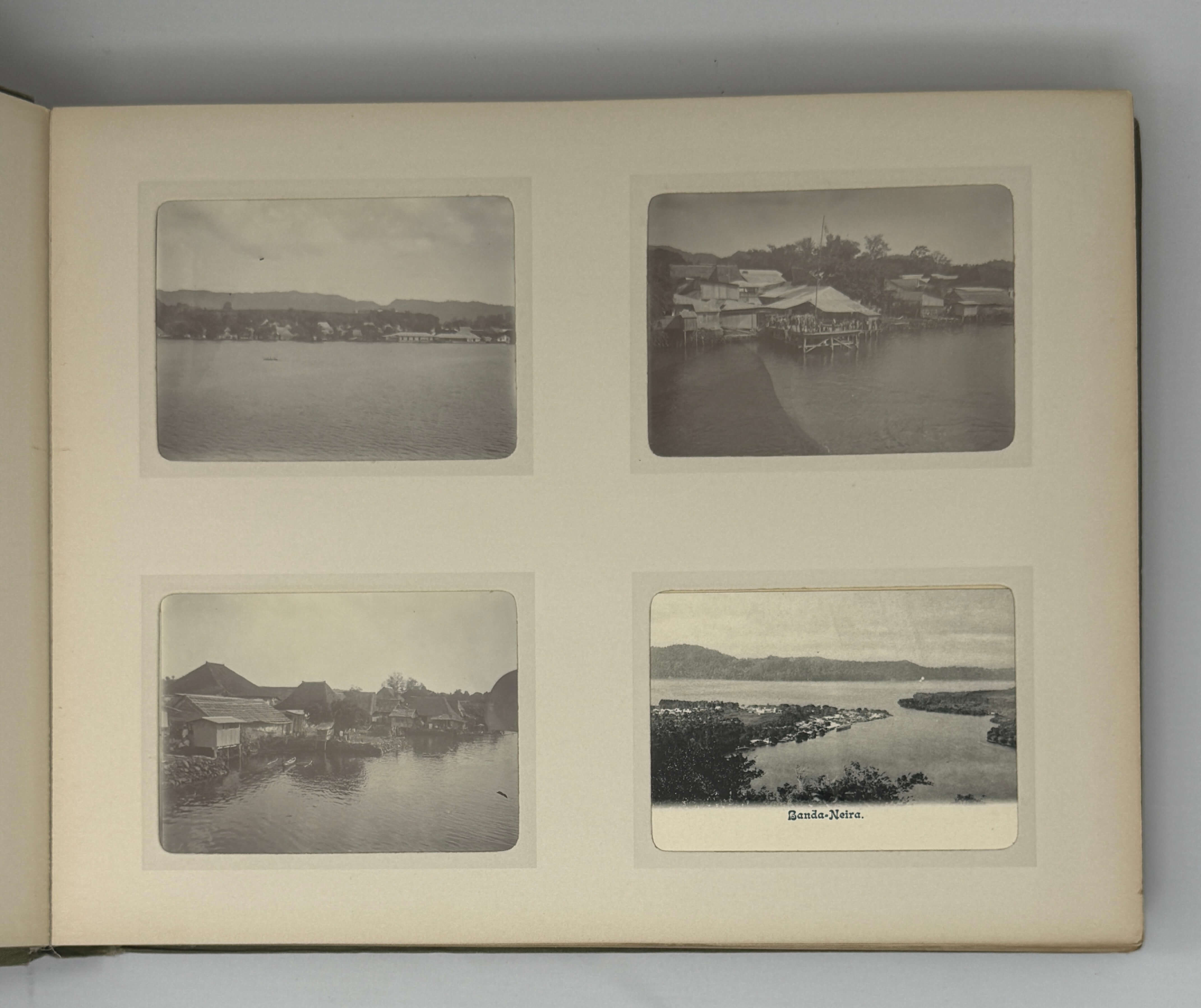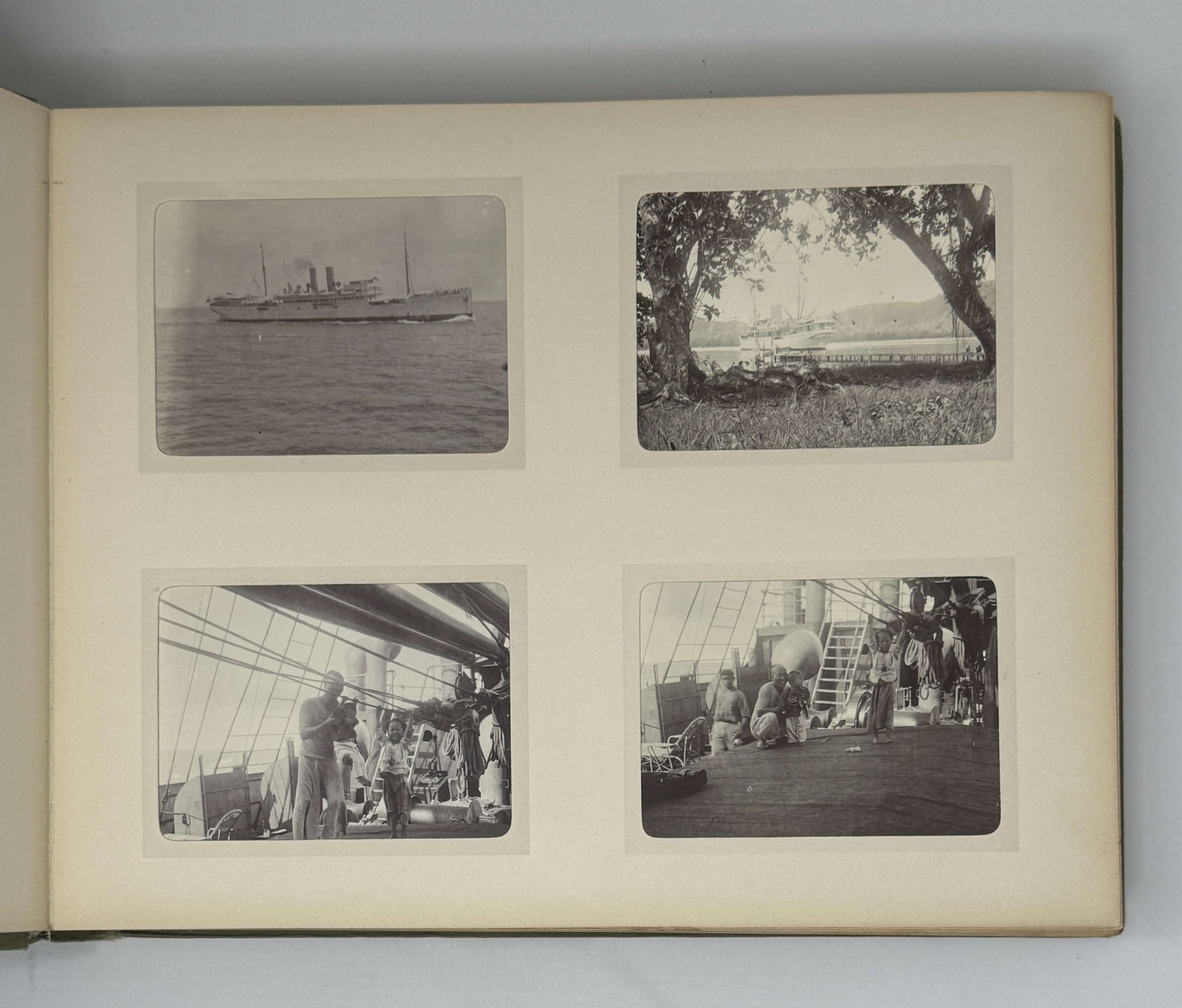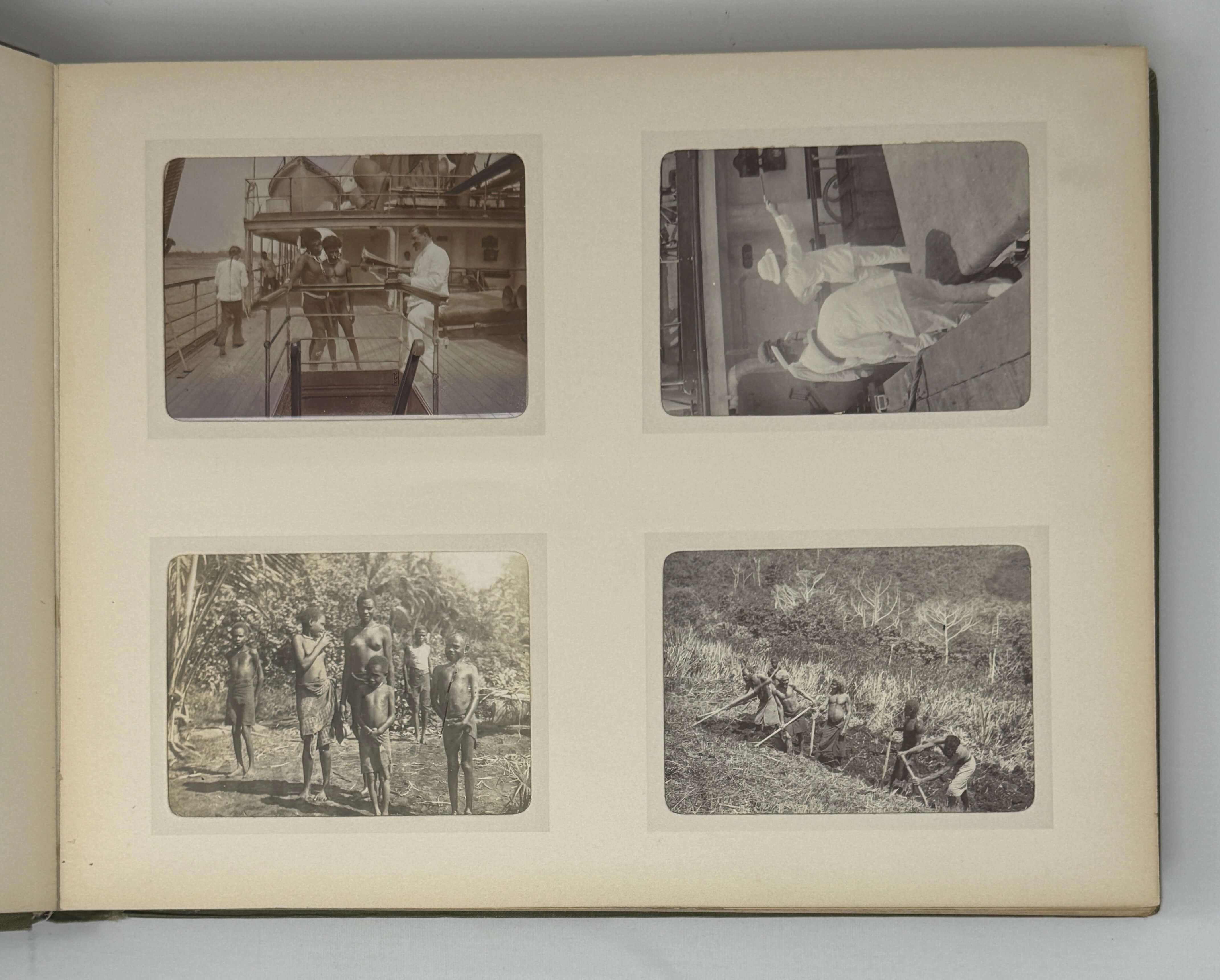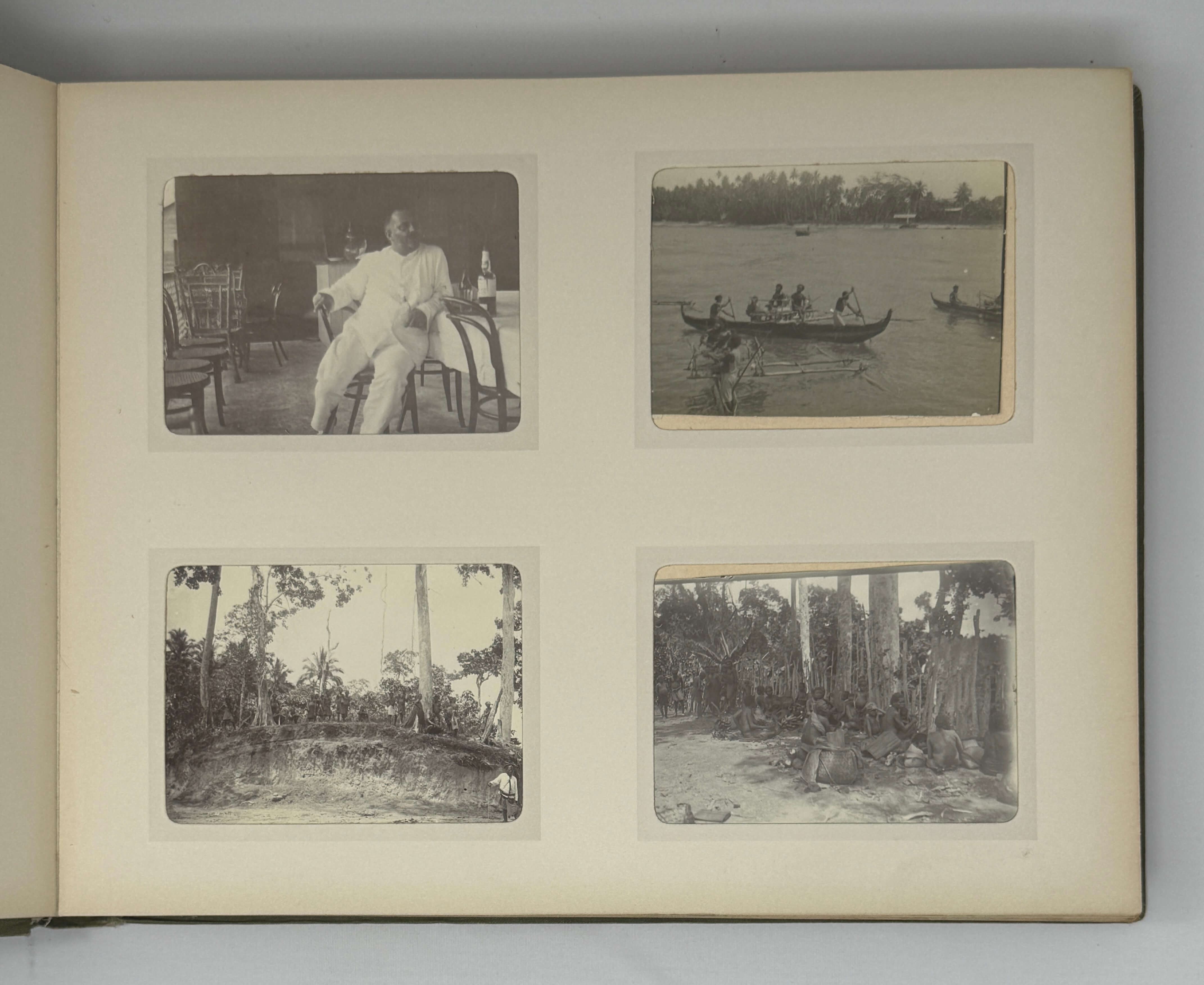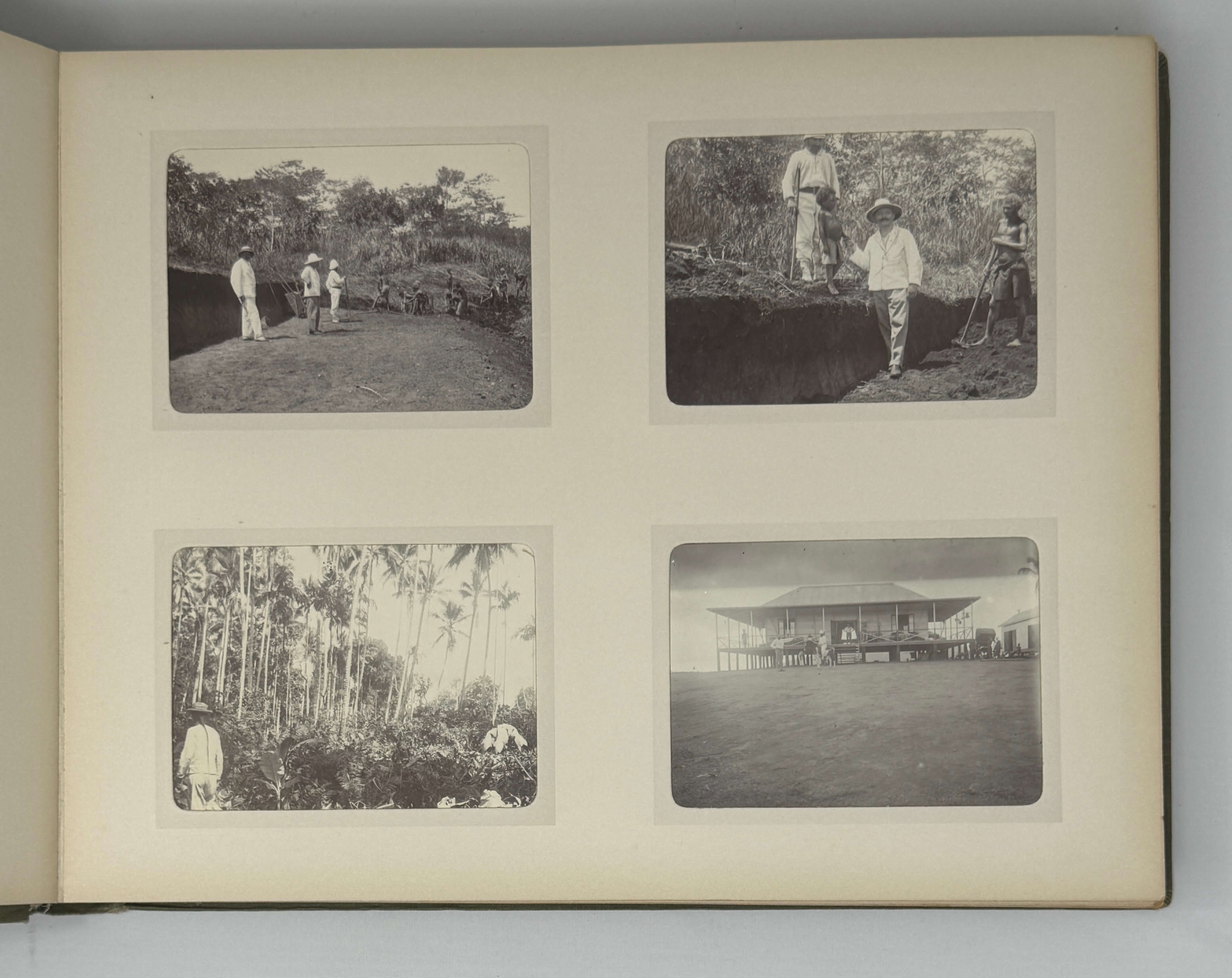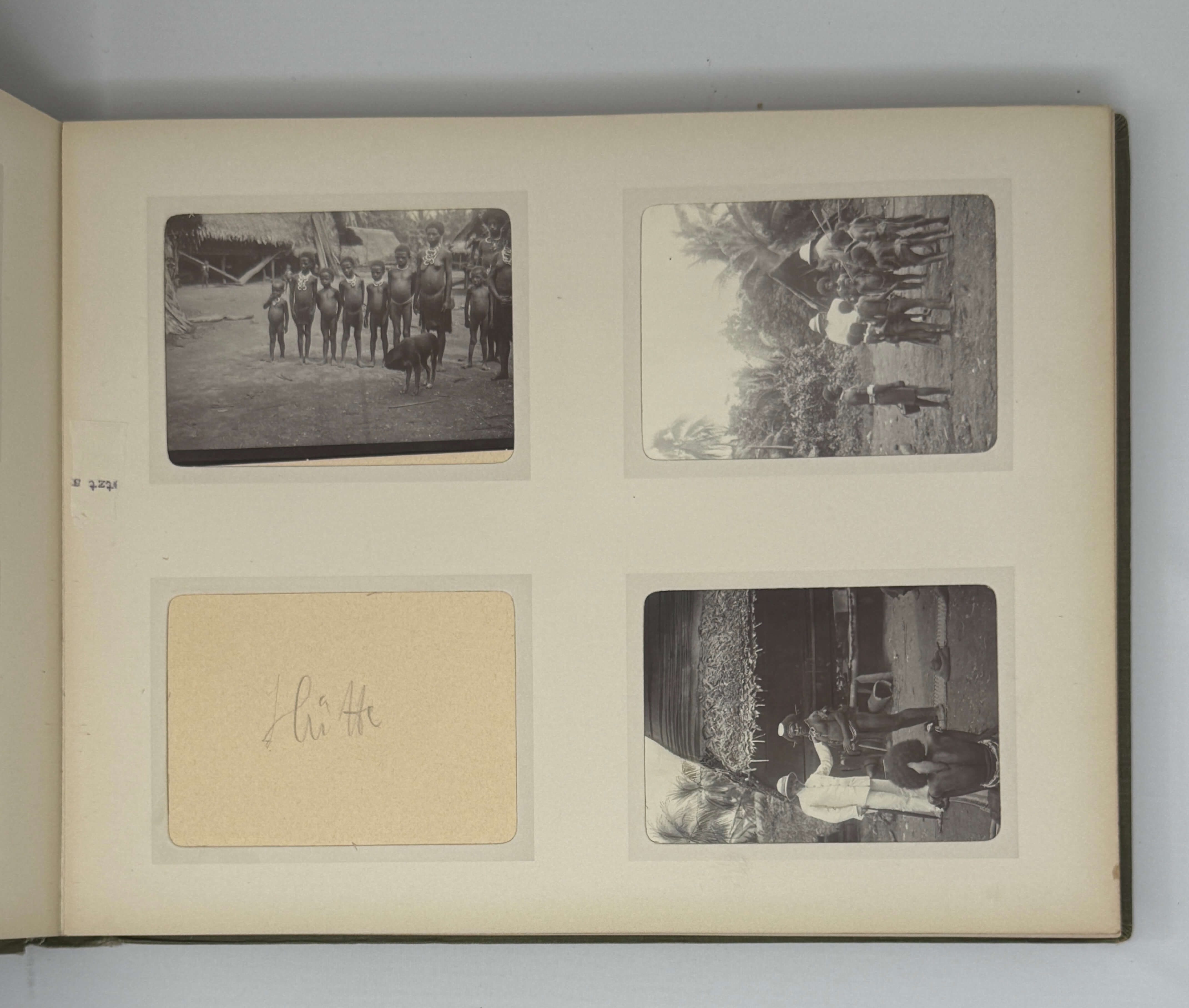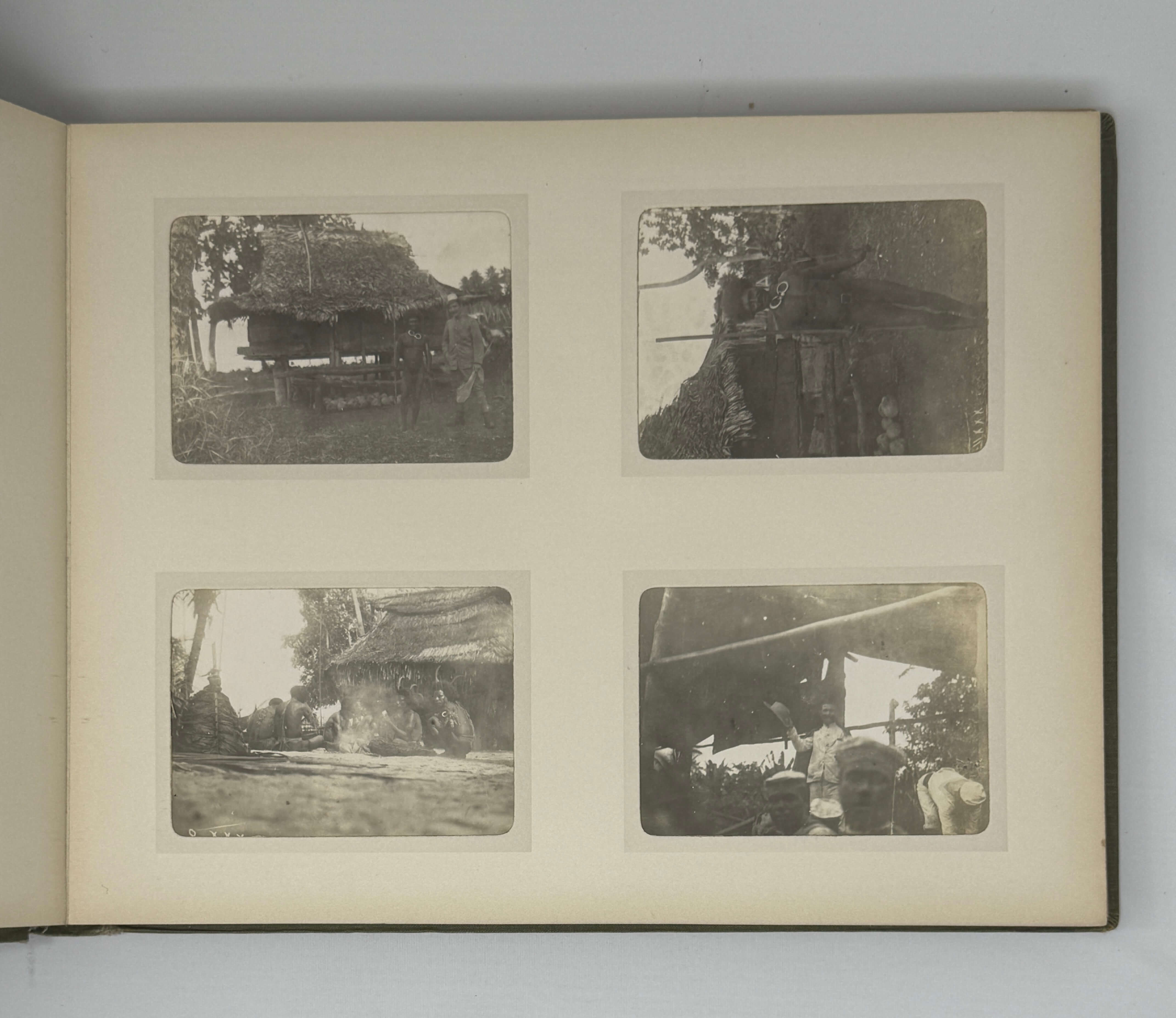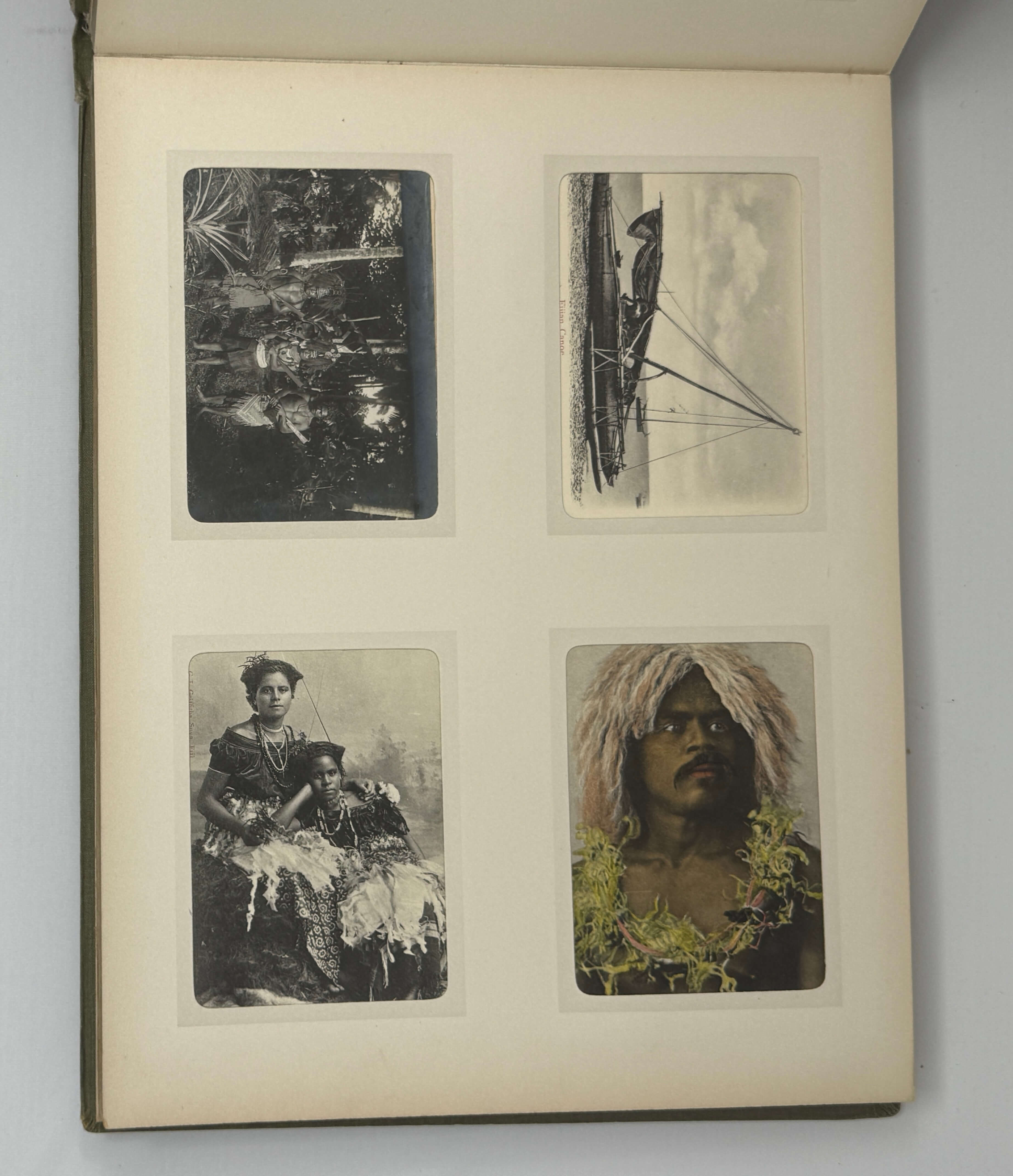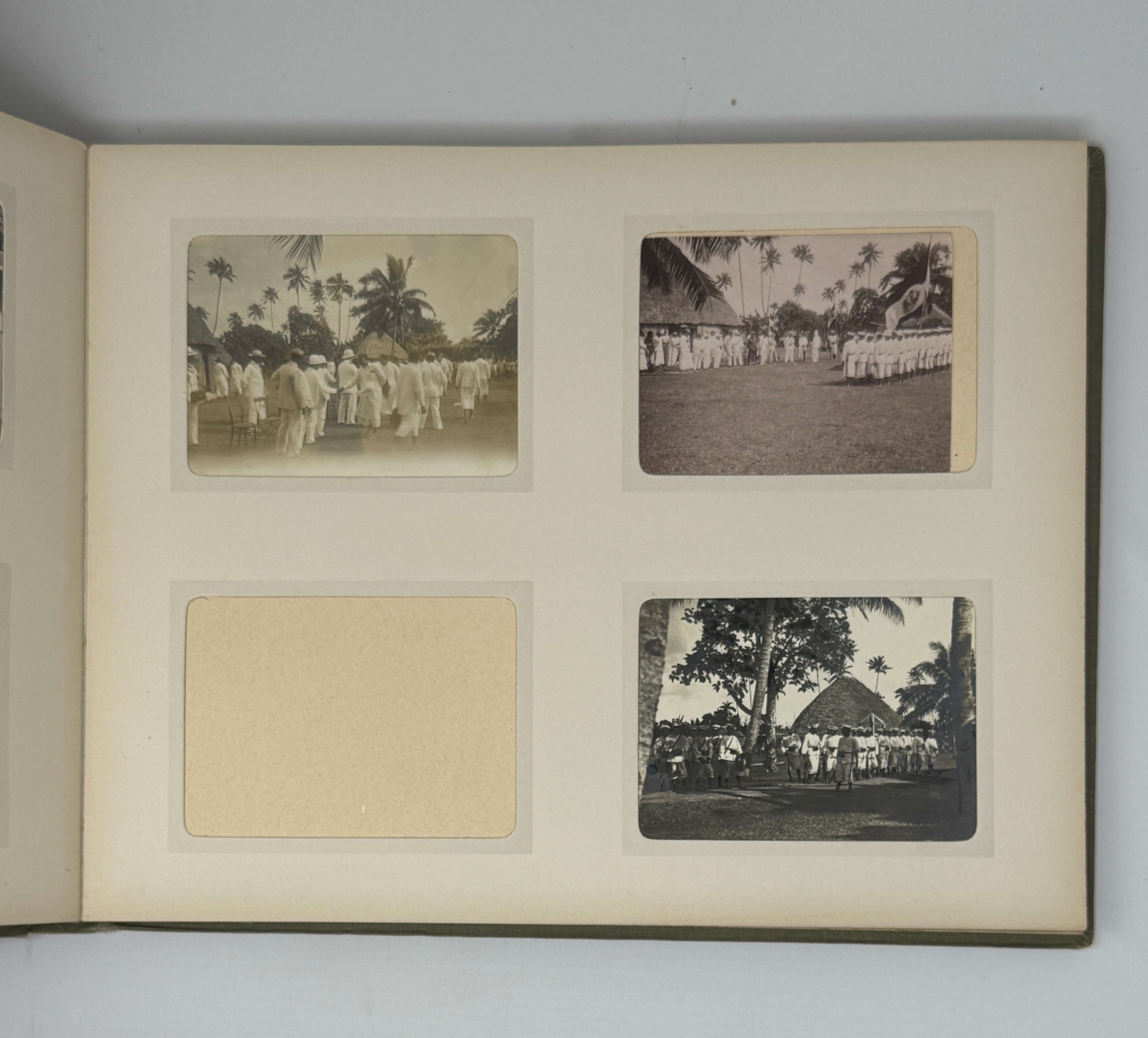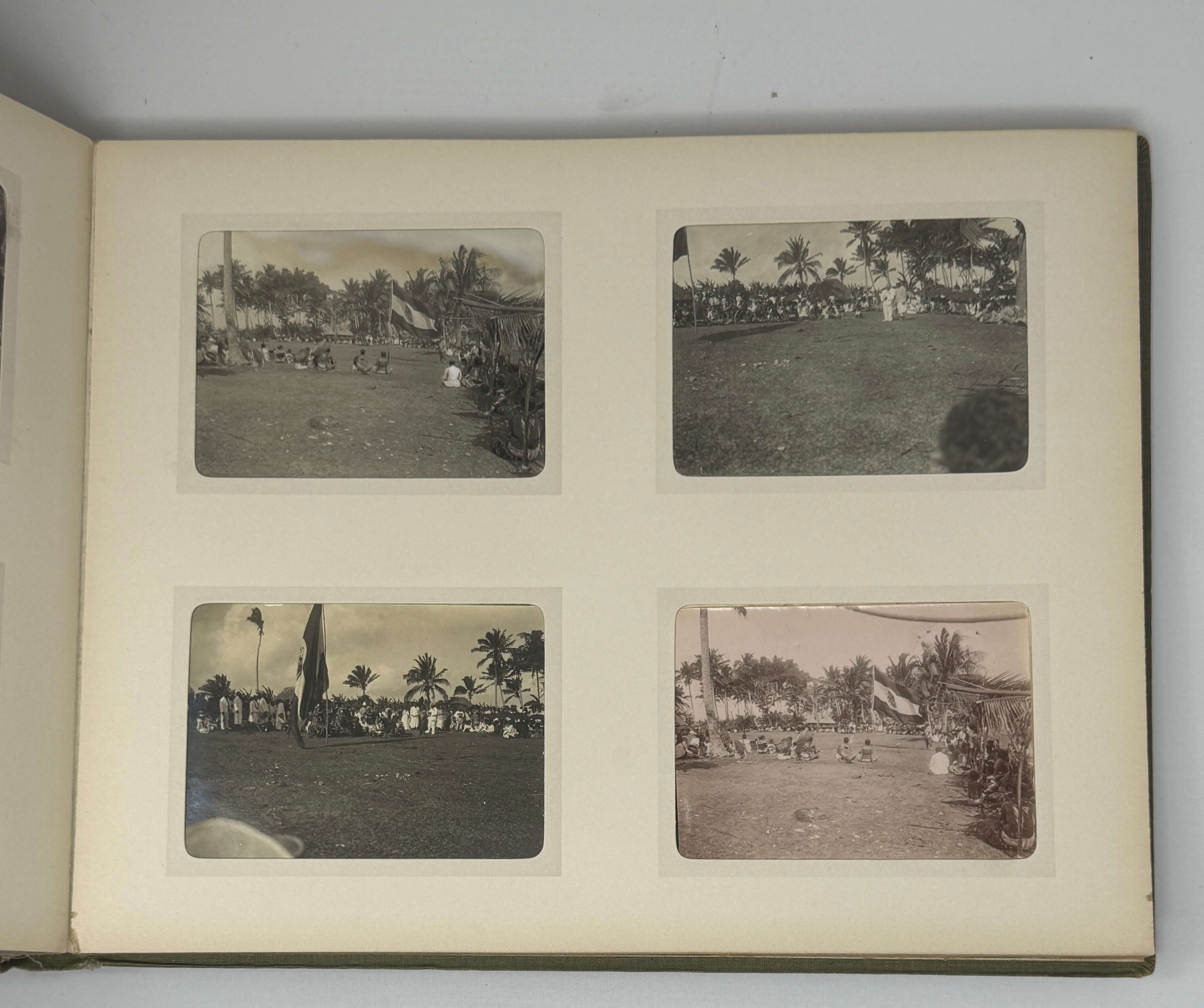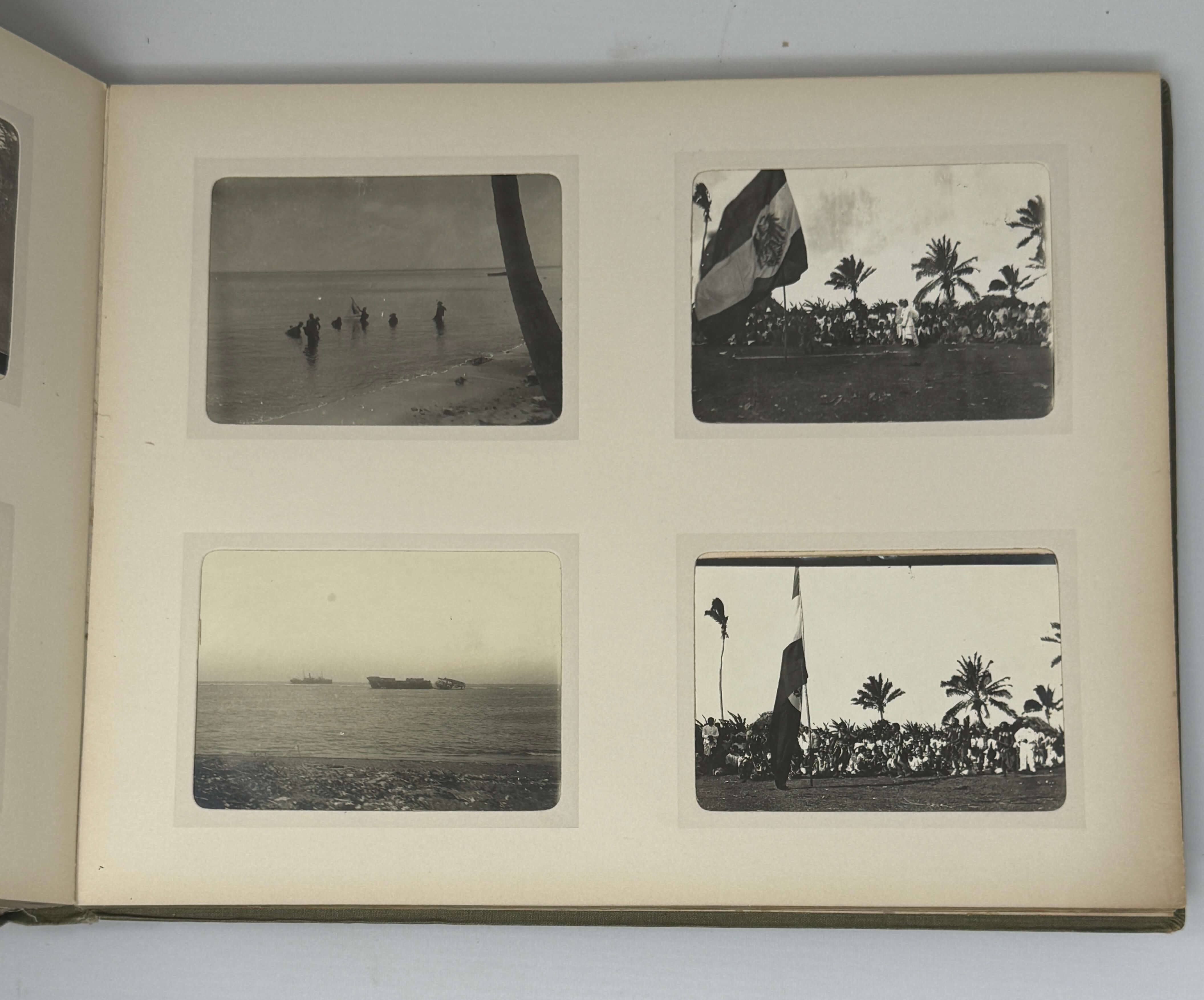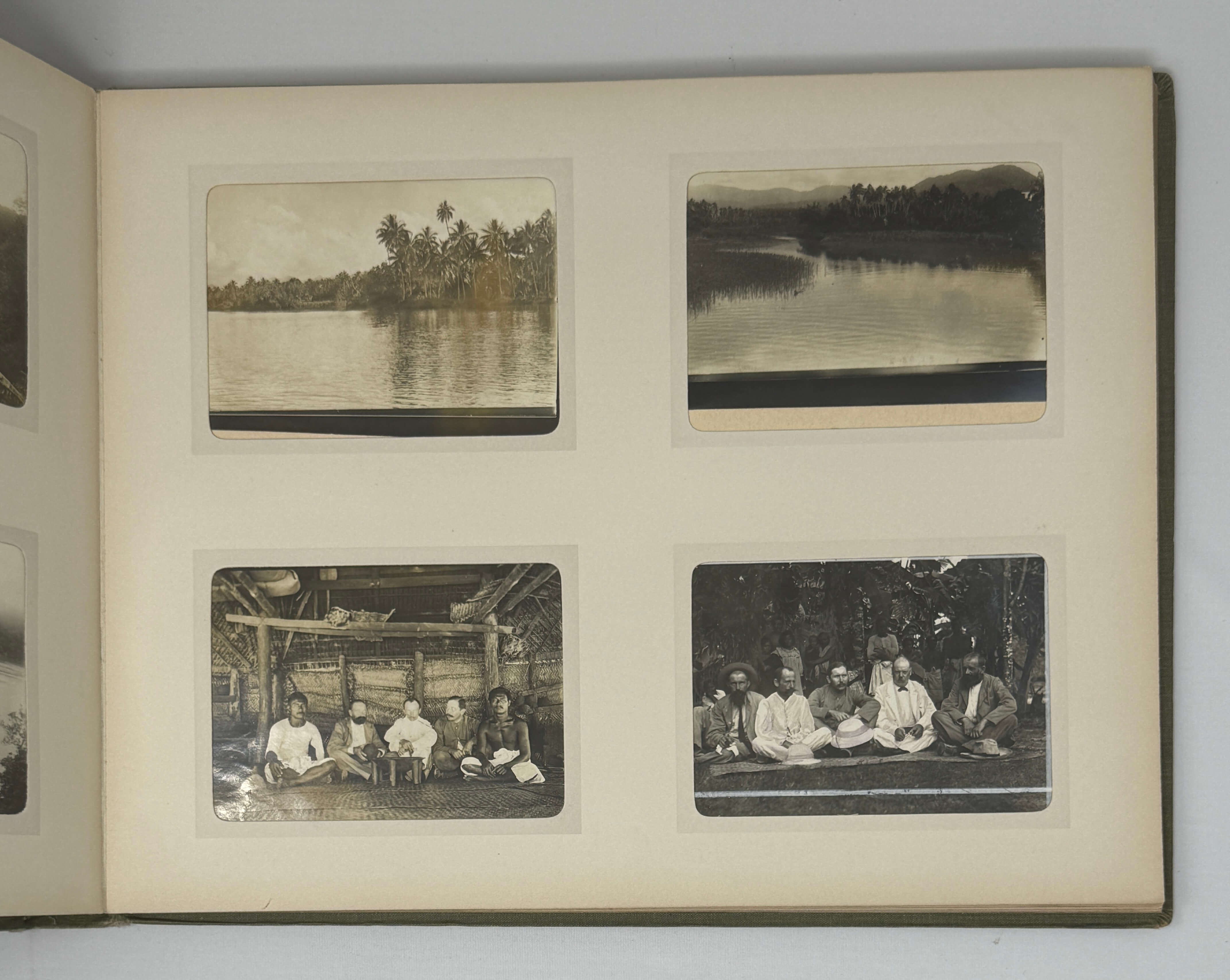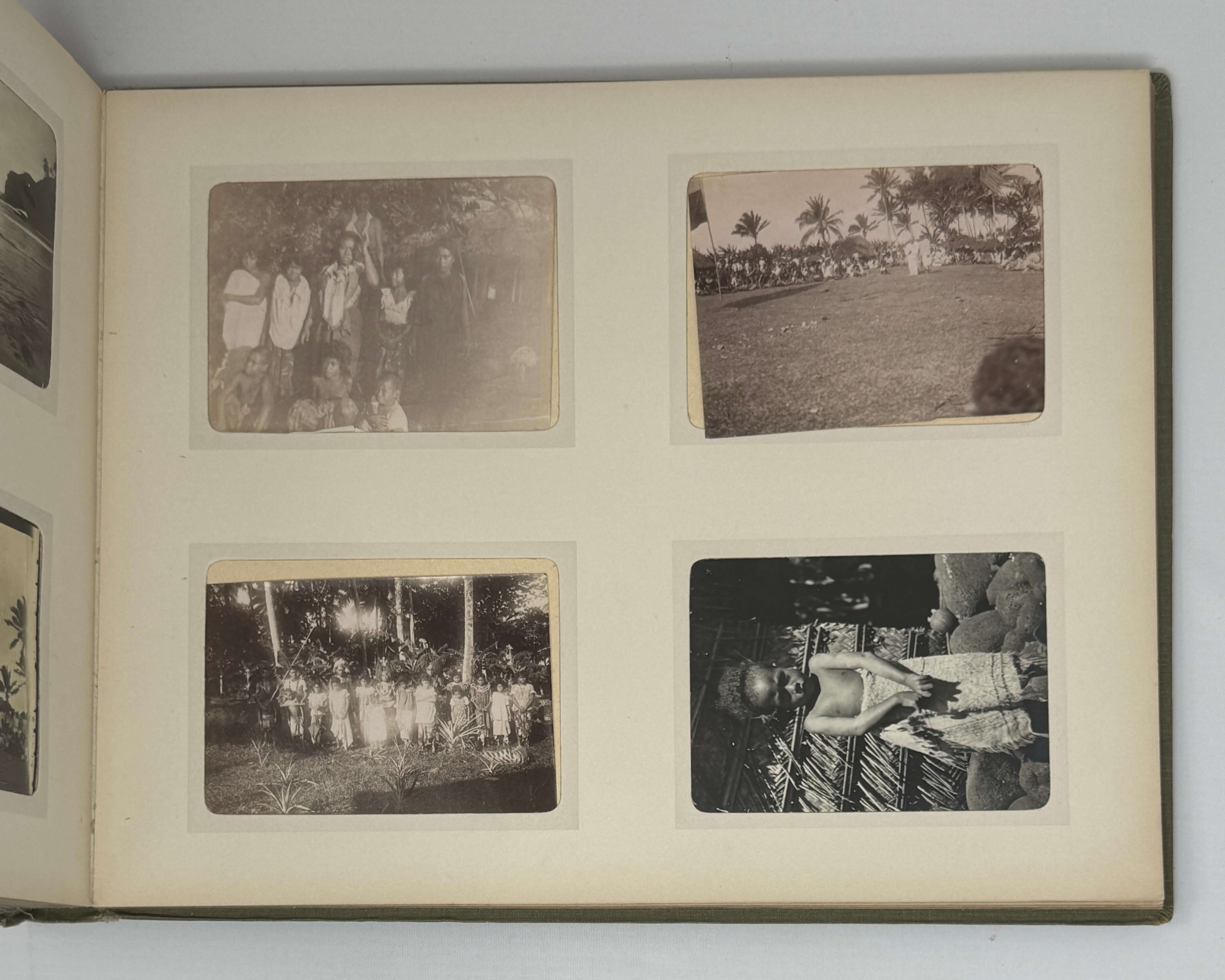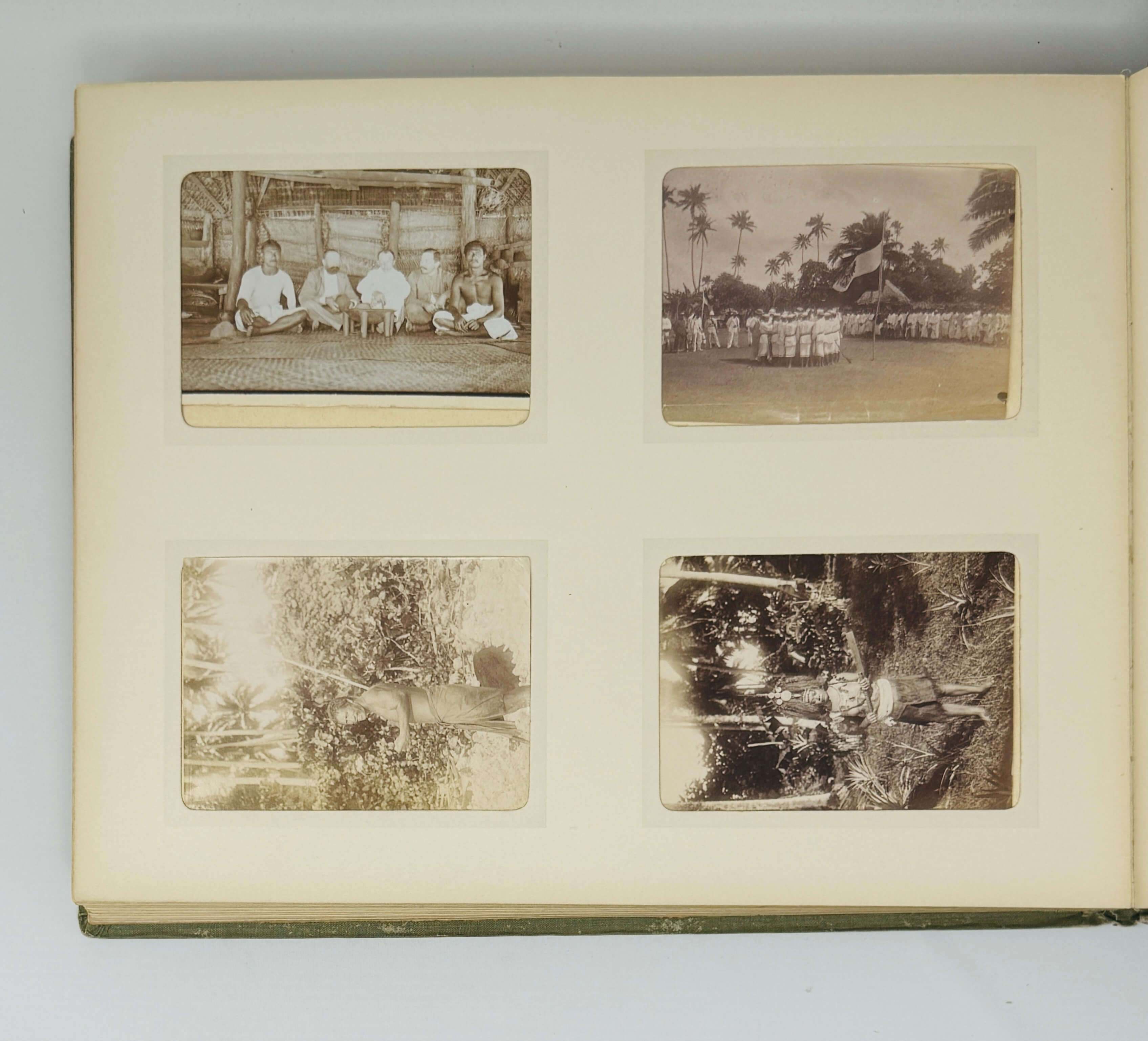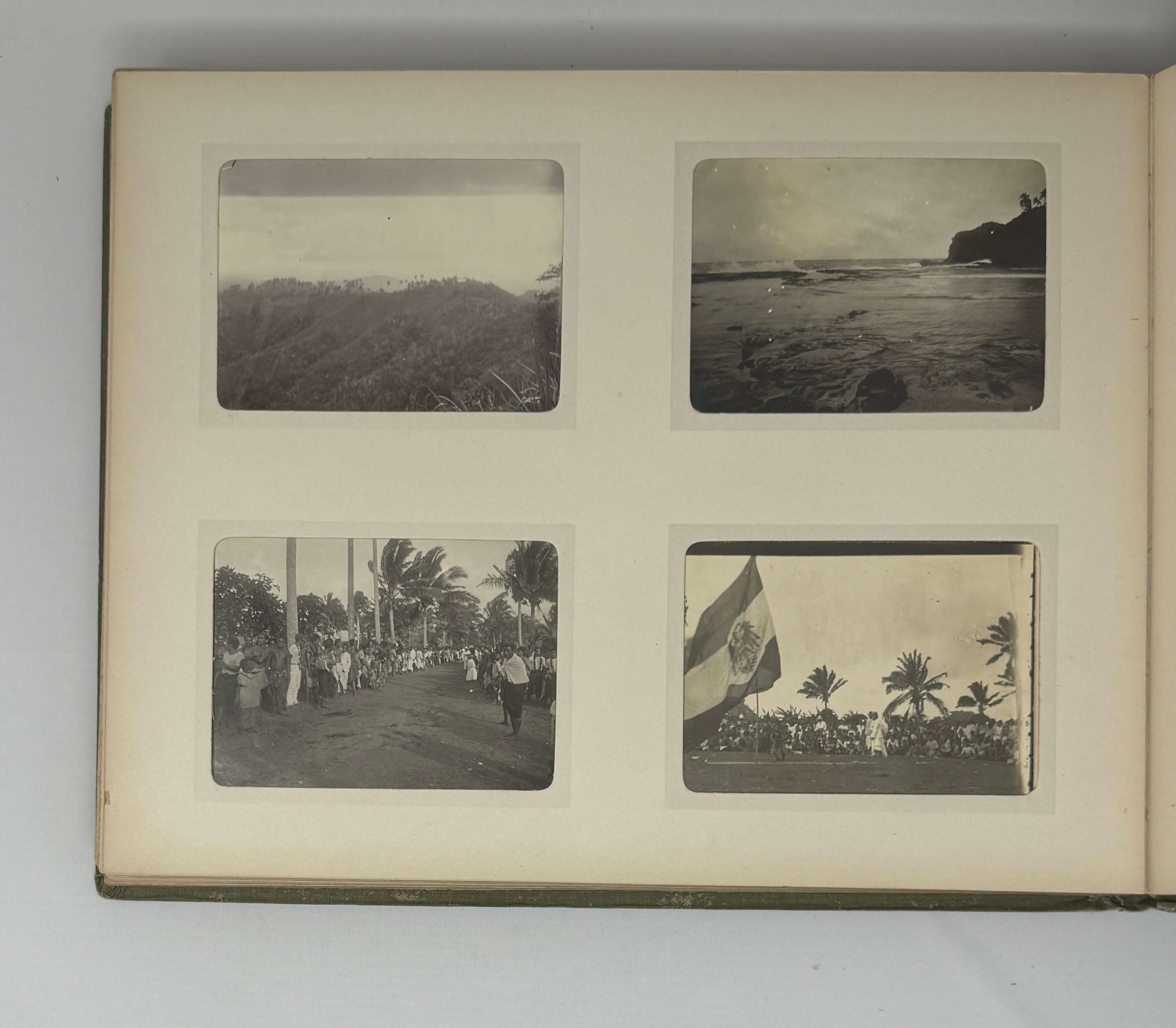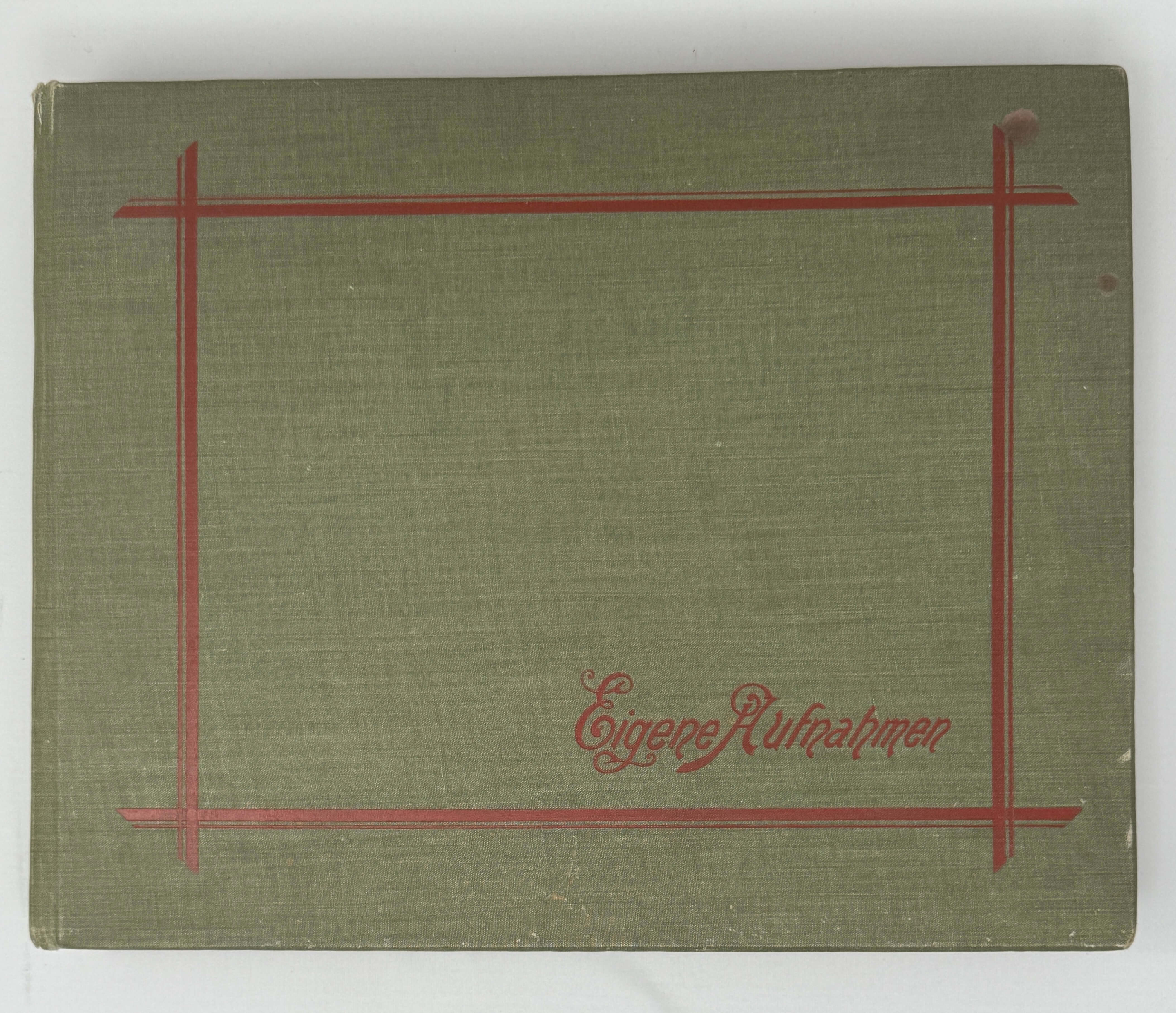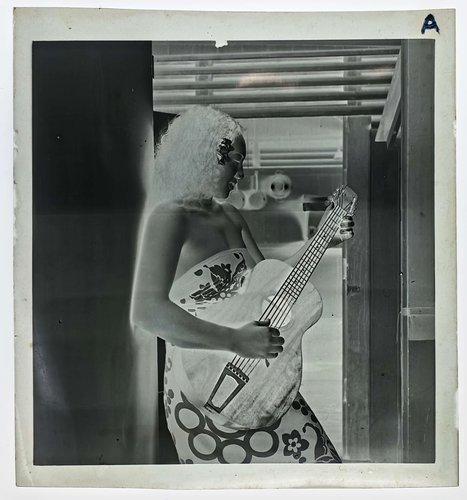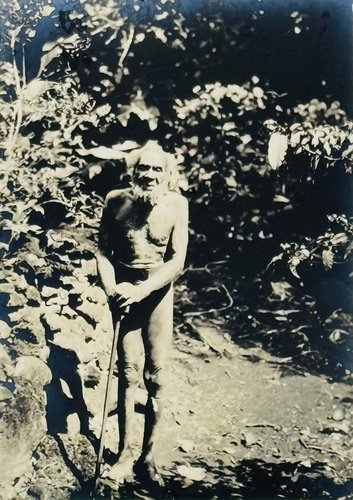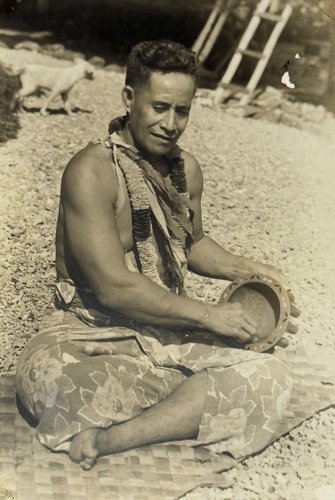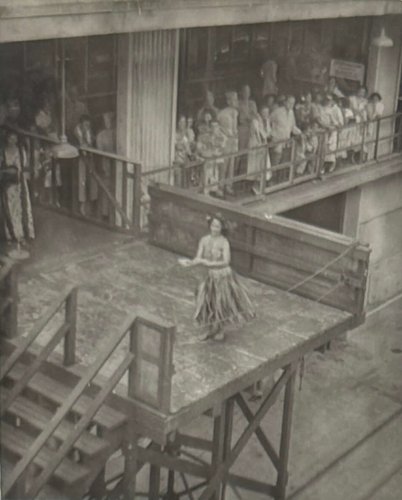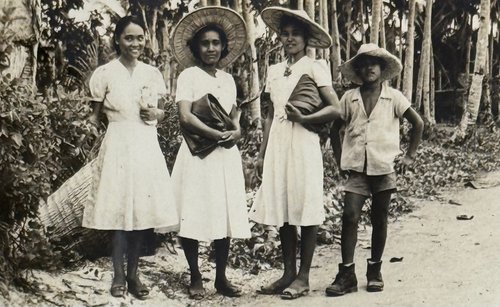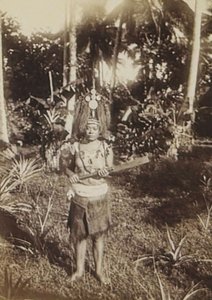
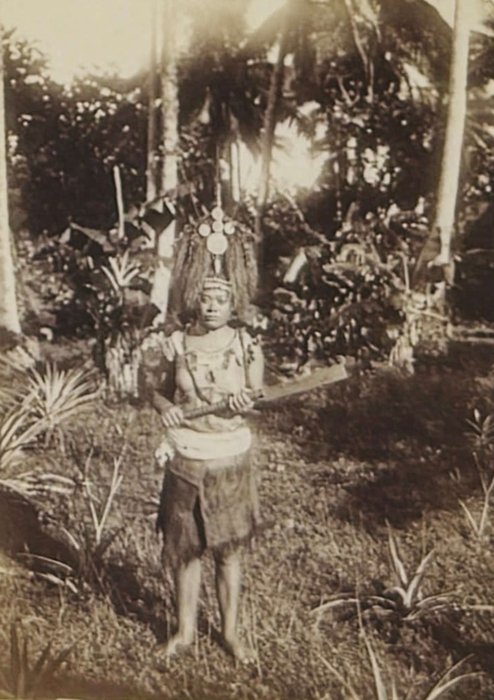
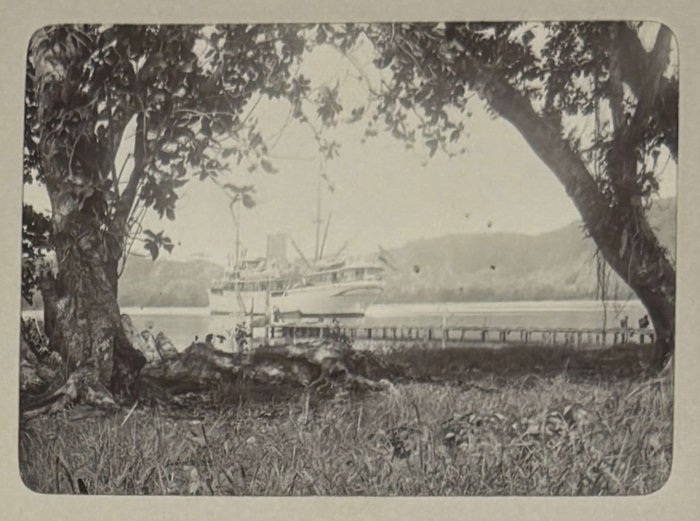
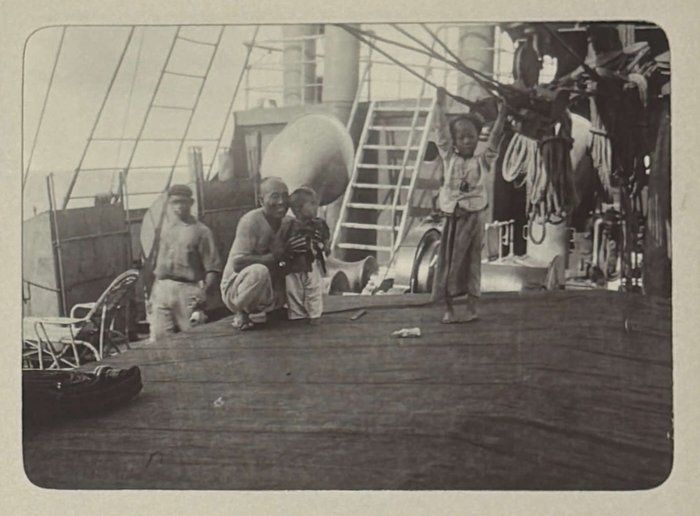
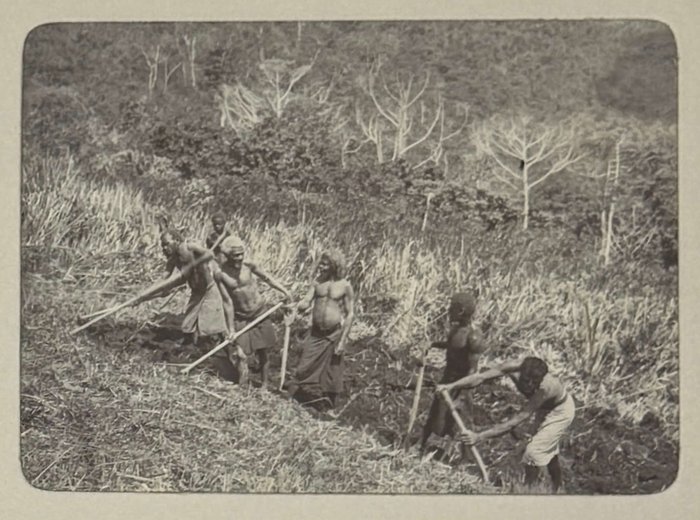
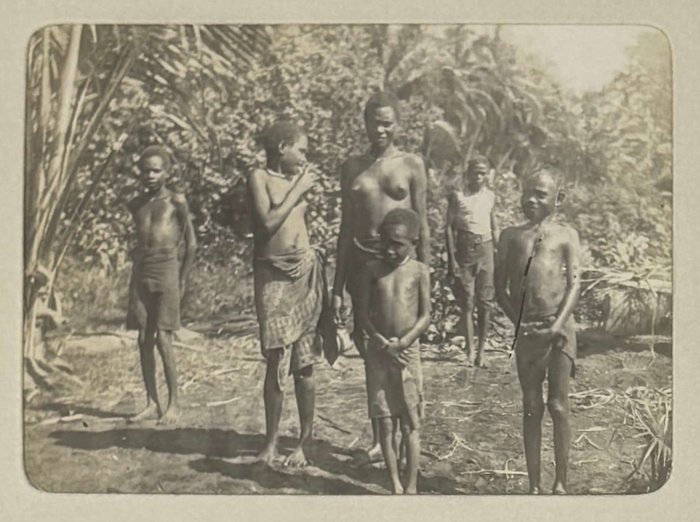
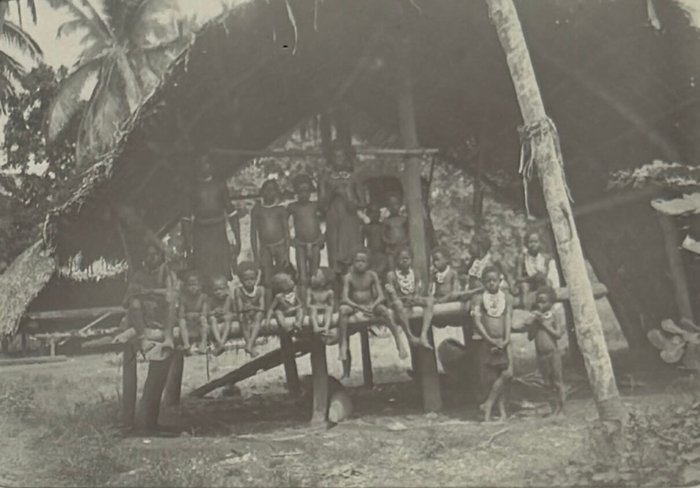
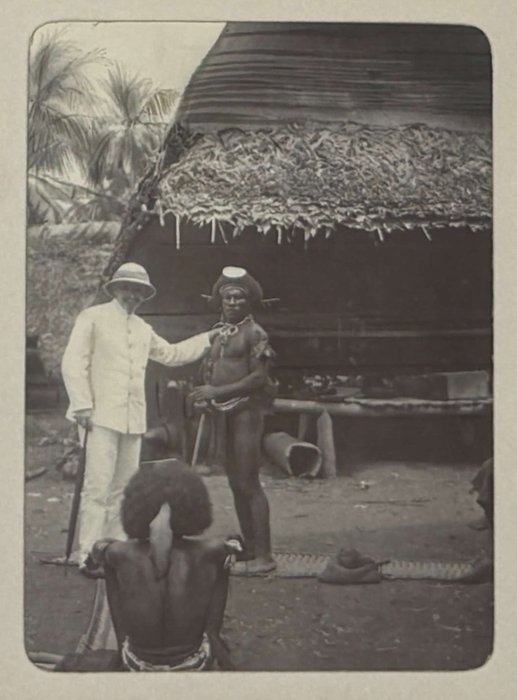
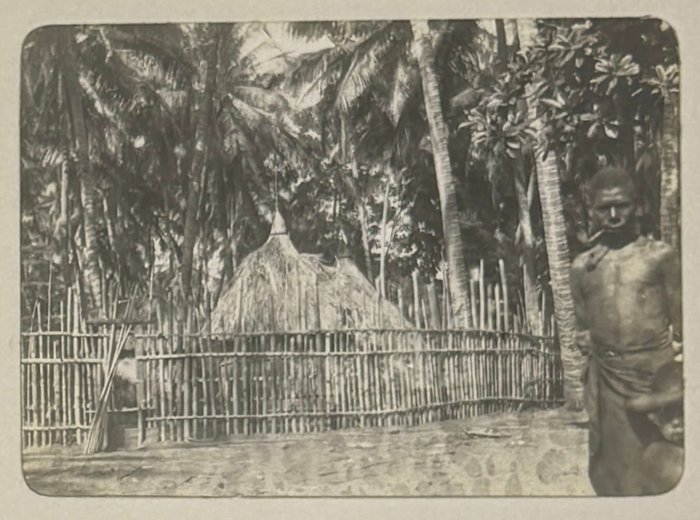
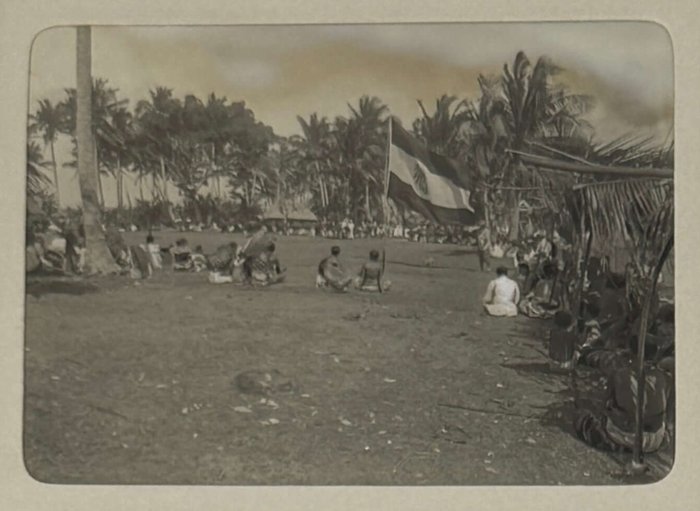
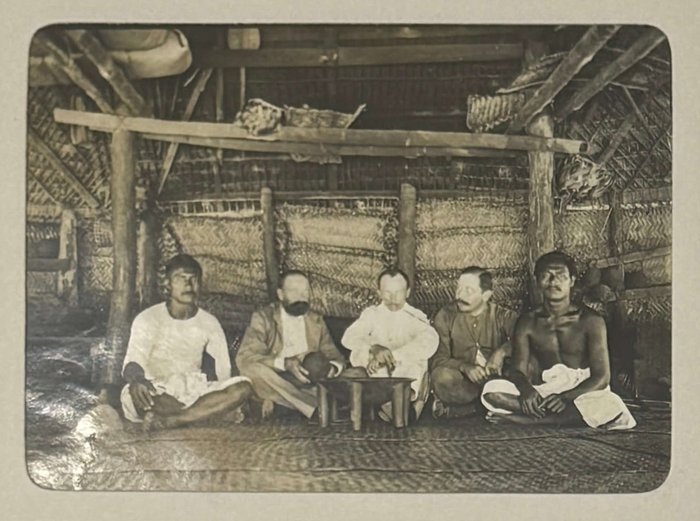
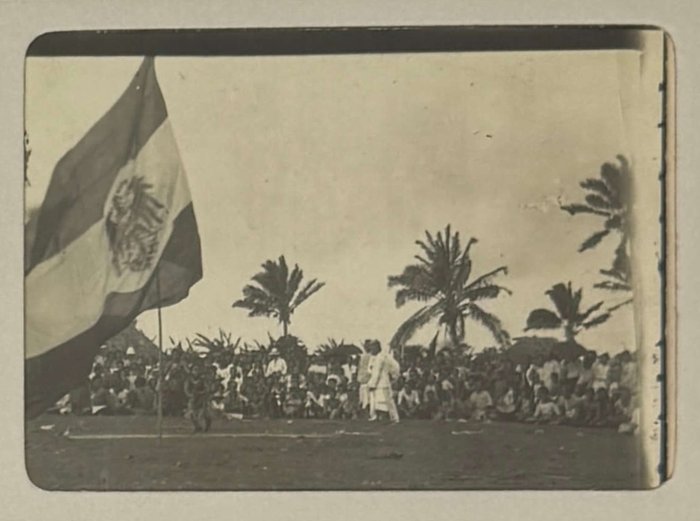
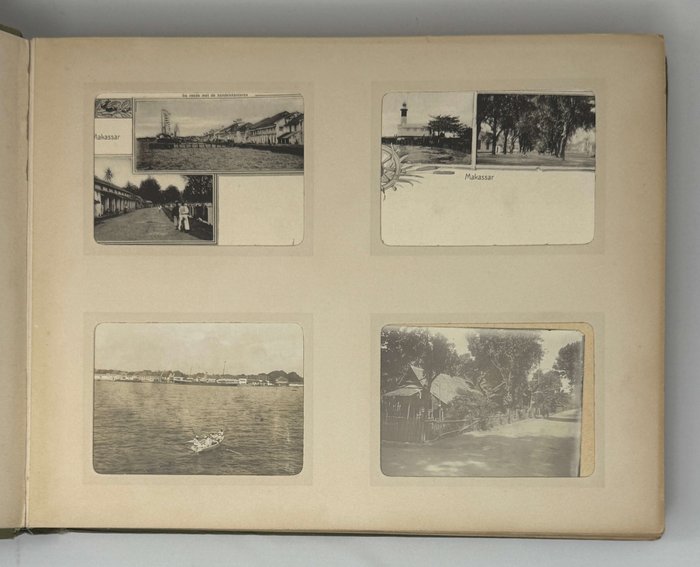
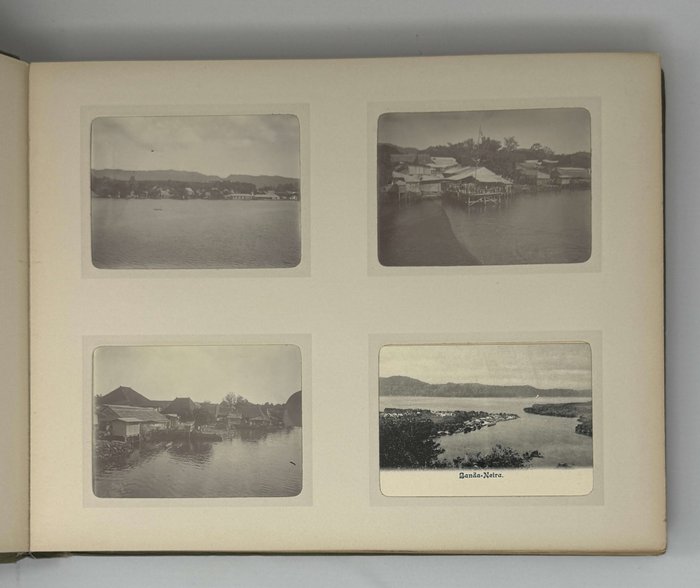
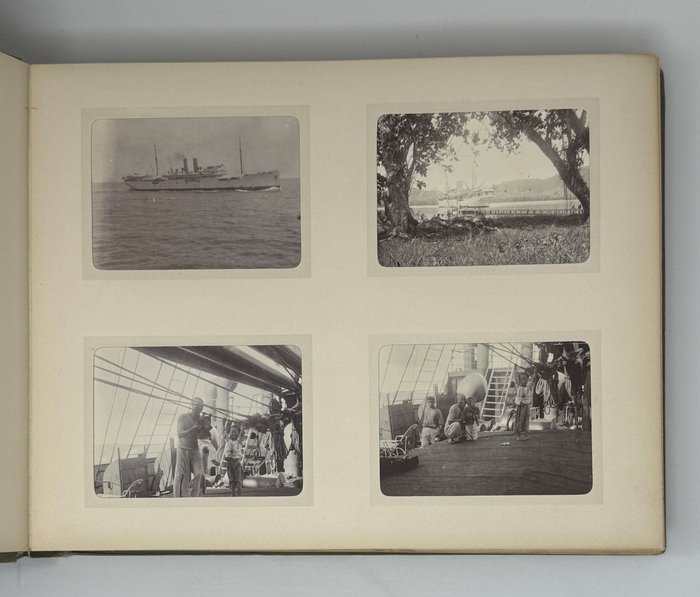
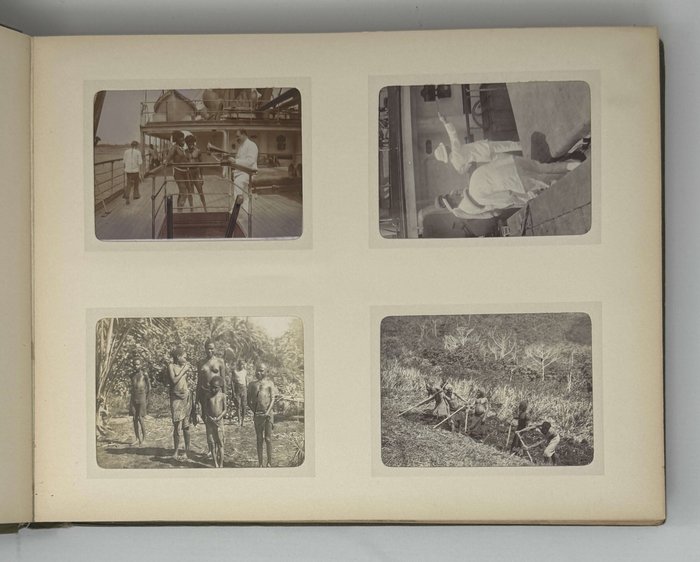
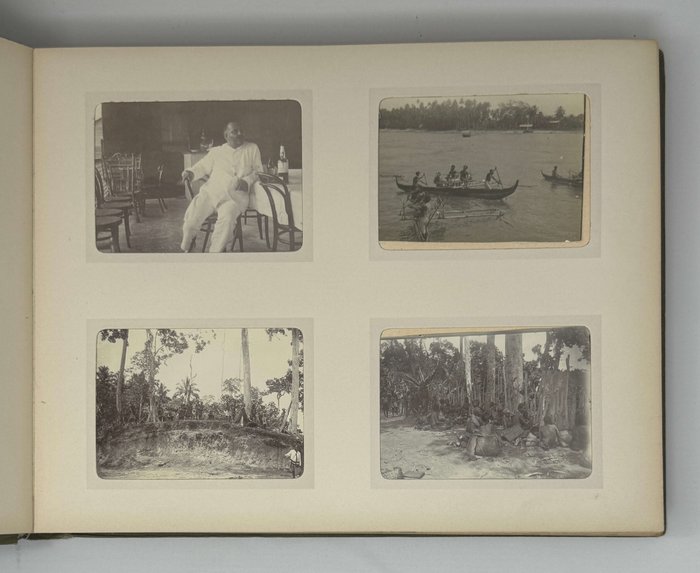
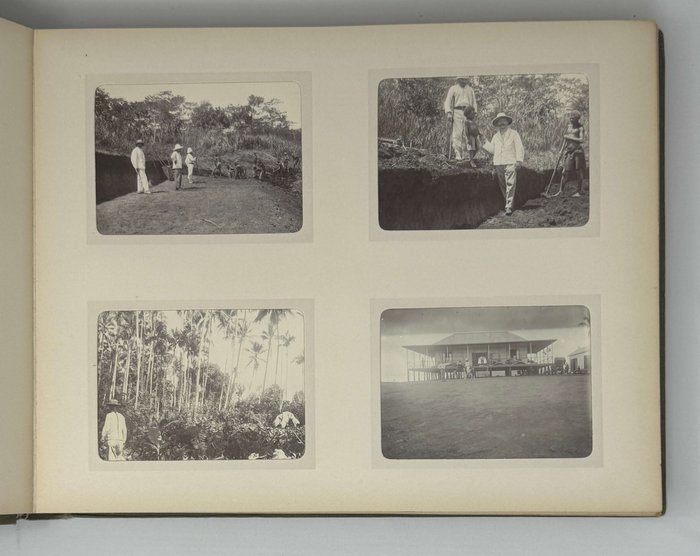
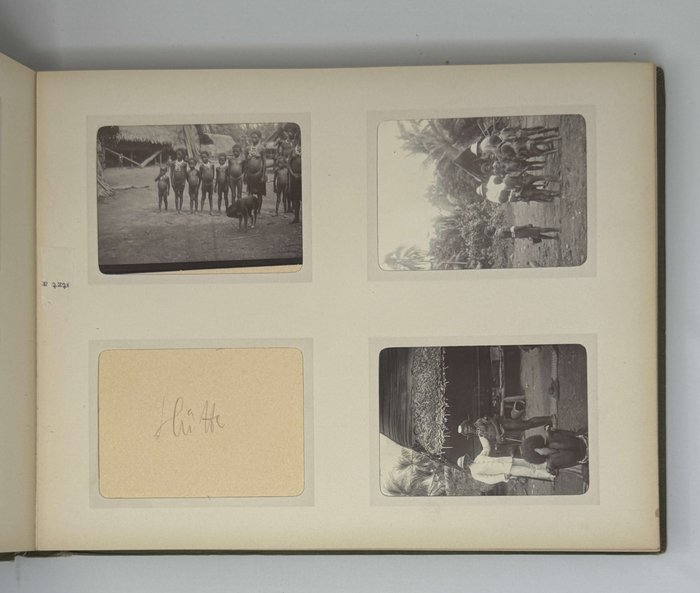
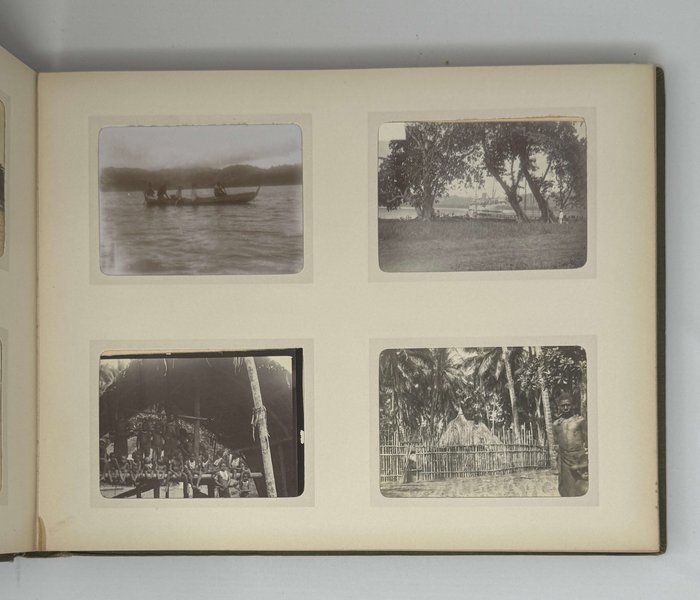
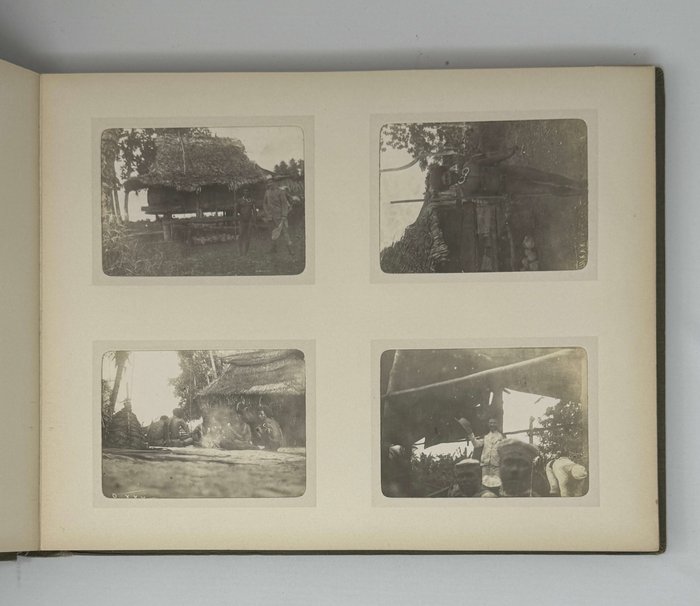
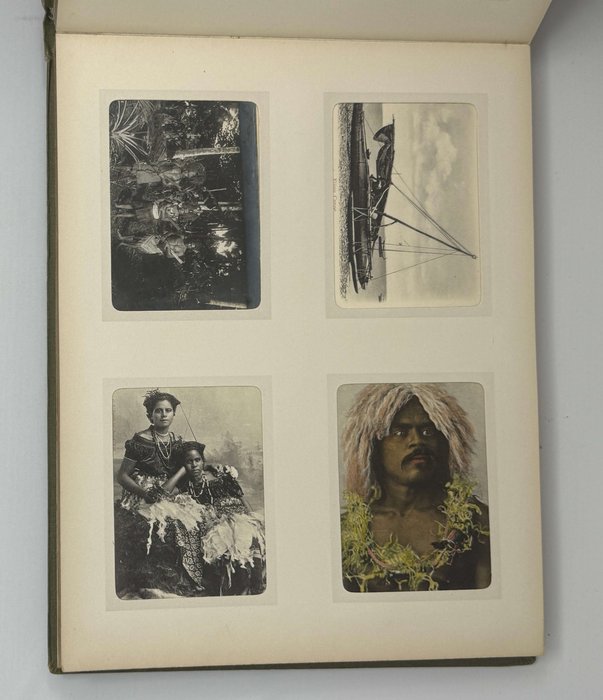
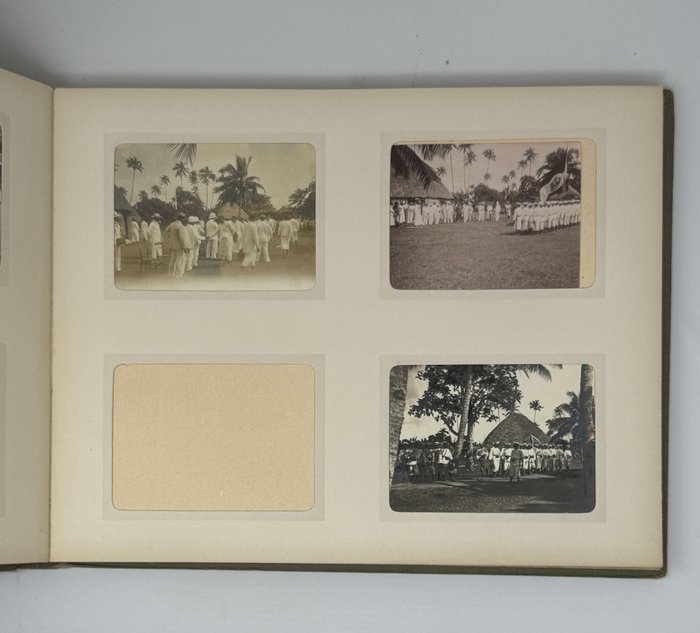
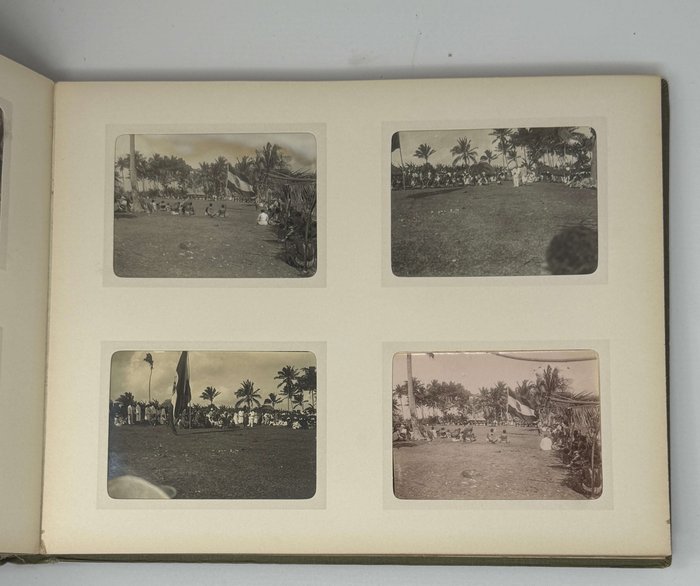
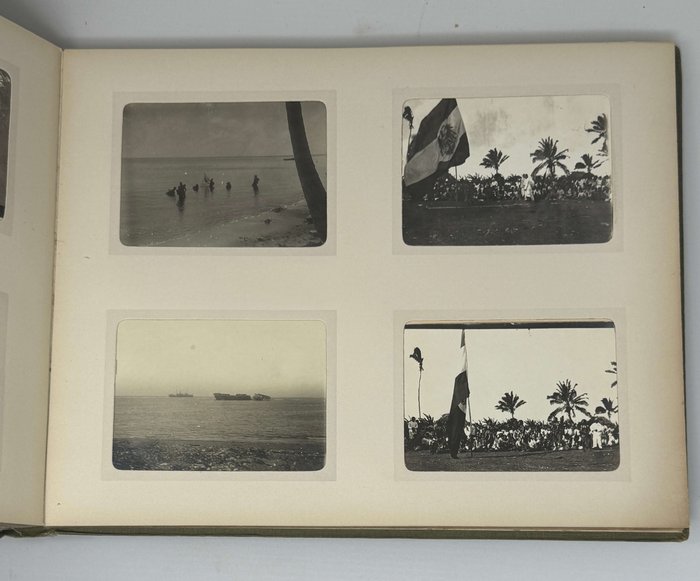
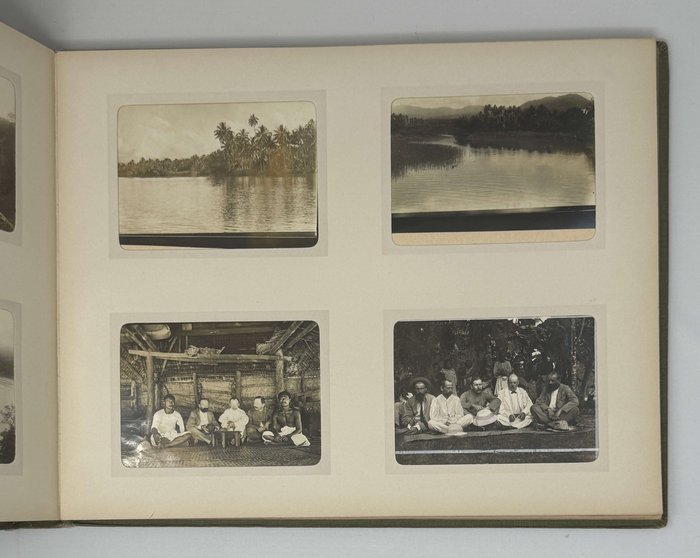
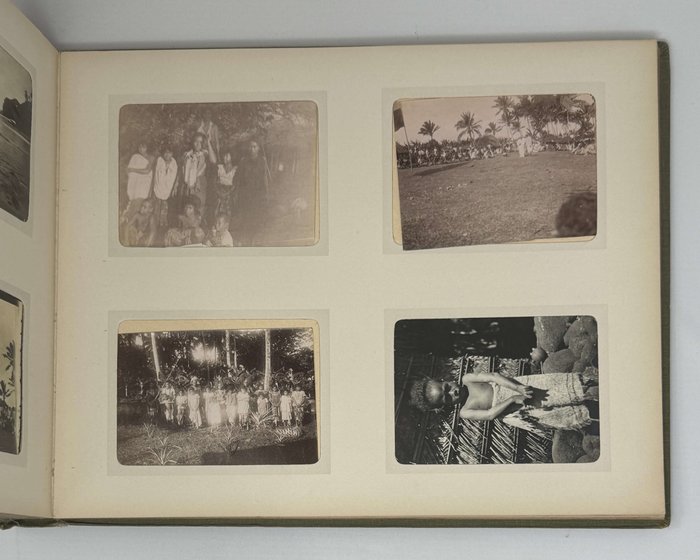
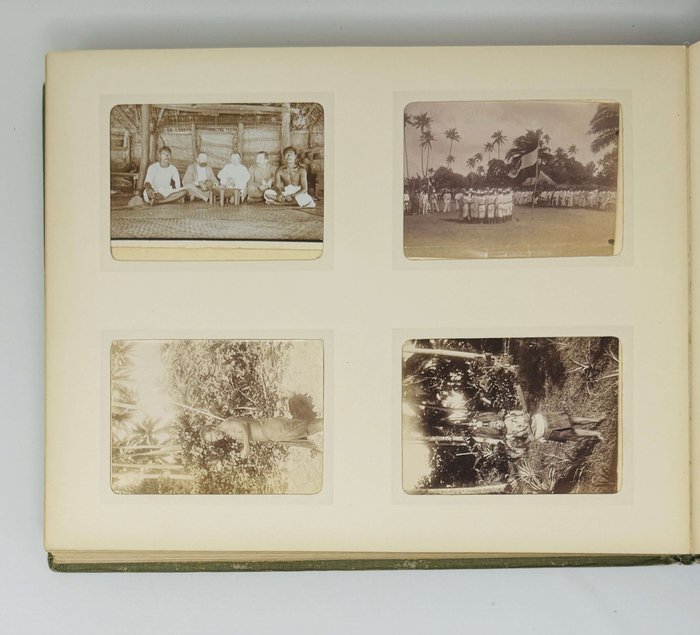
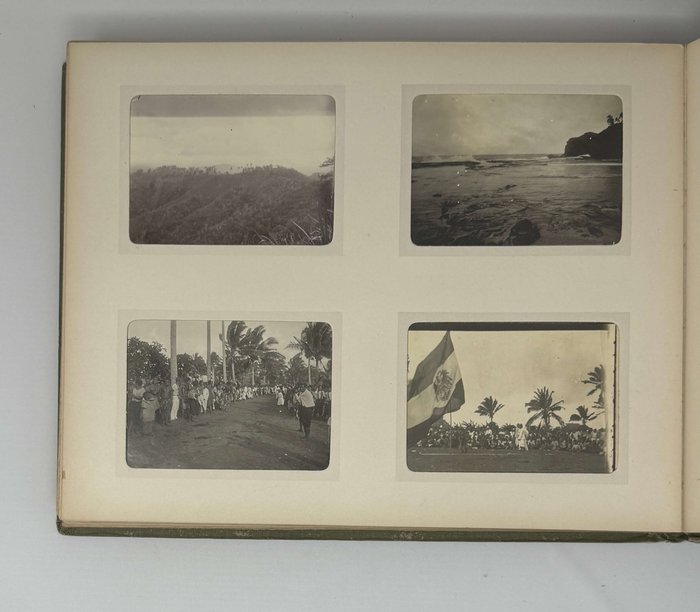
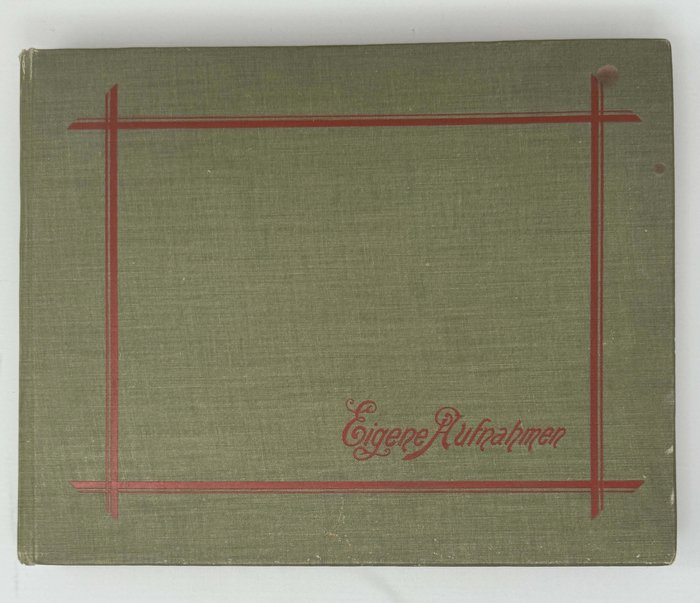
#PF4
Ca. 1900s
Oblong Folio album (ca. 27 x 33 cm or 10 ½ x 13 in). 24 card stock leaves. With 138 original gelatin silver photos, mostly ca. 8 x 12 cm (3 x 4 ¾ in). With 17 printed postcards, ca. 9x13 cm (3 ½ x 5 in); all mounted in windows. All postcards withprinted captions on the margins. Some of the photos are captioned in German on versos. Period green full cloth album; red gilt-tooled ornamental border and generic title in German on the front board. Binding slightly rubbed on extremities, several images previously removed from the album, a few photos mildy faded, but overall a very good album.
A historically interesting extensive collection of original gelatin silver vernacular photos and printed postcards, taken and collected by a German traveller to the colonies of German New Guinea and German Samoa in the early 20th century, before both were occupied by Australia and New Zealand during WW1.
The album opens with twenty-one photos and seven printed postcards, dating back to the compiler’s voyage to the South Pacific through the Dutch East Indies (modern-day Indonesia), showing streets and waterfront of Makassar (Sulawesi), volcanoes and settlements of Banda Islands (Banda Neira, Banda Api, Banda Papenberg peak), the ocean steamer which transported the travelling party (anchored in harbours), the steamer crew and native Indonesians on board the steamer, &c.
Over forty photos and five postcards show the views and people of German New Guinea - mostly of the Bismarck Archipelago (modern-day Islands Region of Papua New Guinea): native children and families from “Matupi” and “Neu Pommern, Bismarck Archipel,” views of Ralum and Herbertshöhe (Kokopo), “Landschaft bei Nusa,” harbours with the travellers’ steamship, cutter boats and native outrigger canoes, villages and palm groves, a large communal building in construction, portraits of Papuan farmers, members of local militia, people wearing traditional costumes, decorations and headdresses, Papuan men listening to a gramophone on board the steamer, a native couple (captioned “Gruss aus dem Bismarck Archipel” on the mount), &c.
Very interesting are over sixty original photos and a printed postcard of German Samoa. About seventeen photographs document a public ceremony of hoisting a German Imperial flag at an open space (likely, in the colonial capital, Apia), with government officials, colonial troops and a crowd of spectators. Two scenes with colonial residents feature Wilhelm Solf, the first Governor of German Samoa (in office: 1900-1911), wearing a white uniform and peaked cap. Two photos portray an elderly Samoan chief - most likely, Mata’afa Josefo (ca. 1832-1912, a Paramount Chief of German Samoa), posing with a colonial resident in front of a German Imperial flag. There is also a view of the wreck of SMS “Adler” in Apia harbour, which was destroyed, alongside several German and U.S. warships, during the 1889 Apia cyclone. Other photos show Samoan rivers, coastal views, portraits of Samoans in traditional costumes, families, children, German residents, &c. The printed postcard is a view of “Samoa Inseln – Apia, nach Süden zu.”
The album also contains several printed postcards and original photos of Fiji, showing “A peep of Suva,” “Fijian canoe,” “Village scene – Fiji,” “Attacked,” “Cannibal feast – Fiji,” portraits of native warriors and young women, &c.
Overall an historically interesting extensive collection of original gelatin silver amateur photos, documenting life in German New Guinea and German Samoa in the early 20th century.

